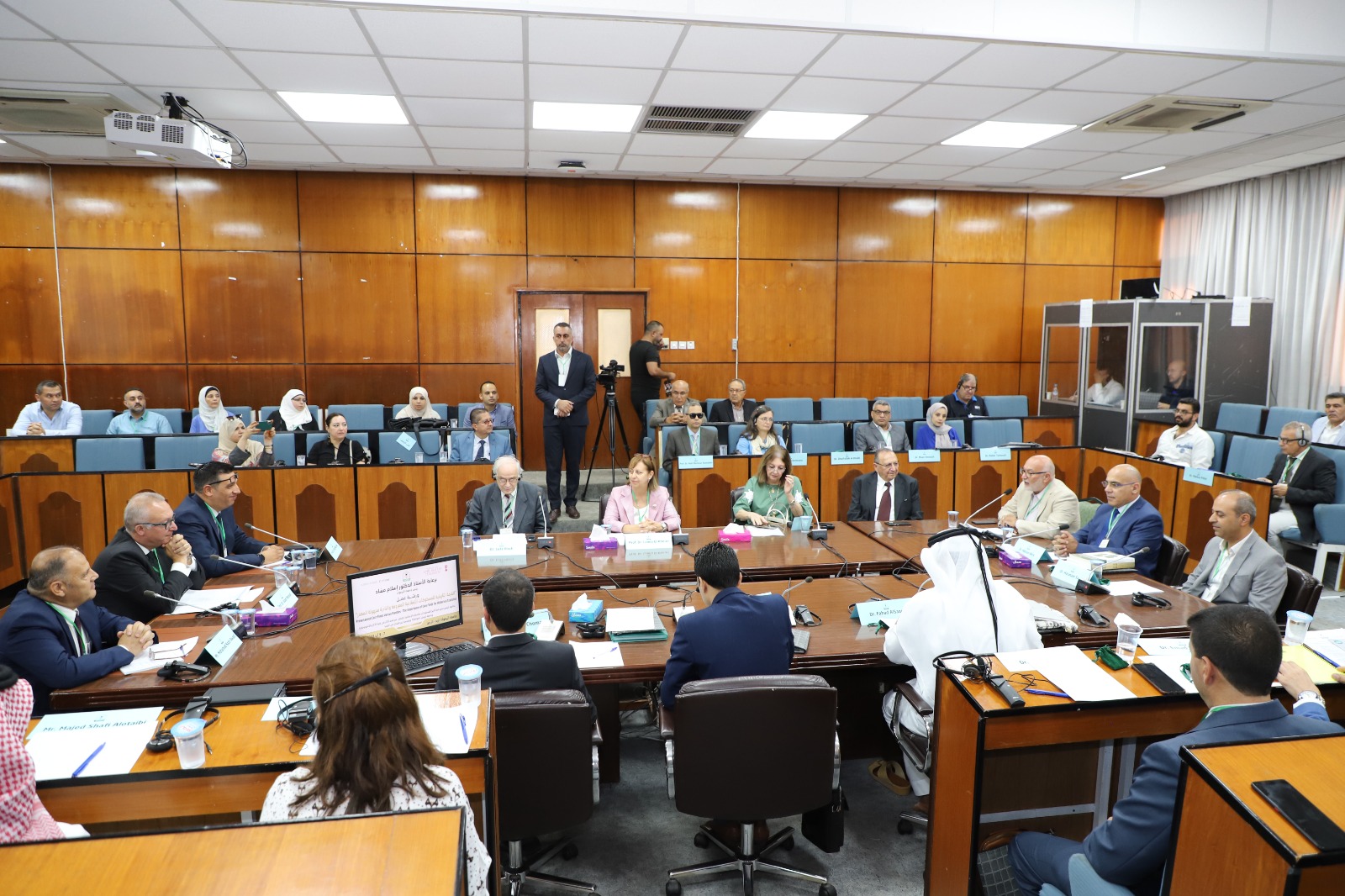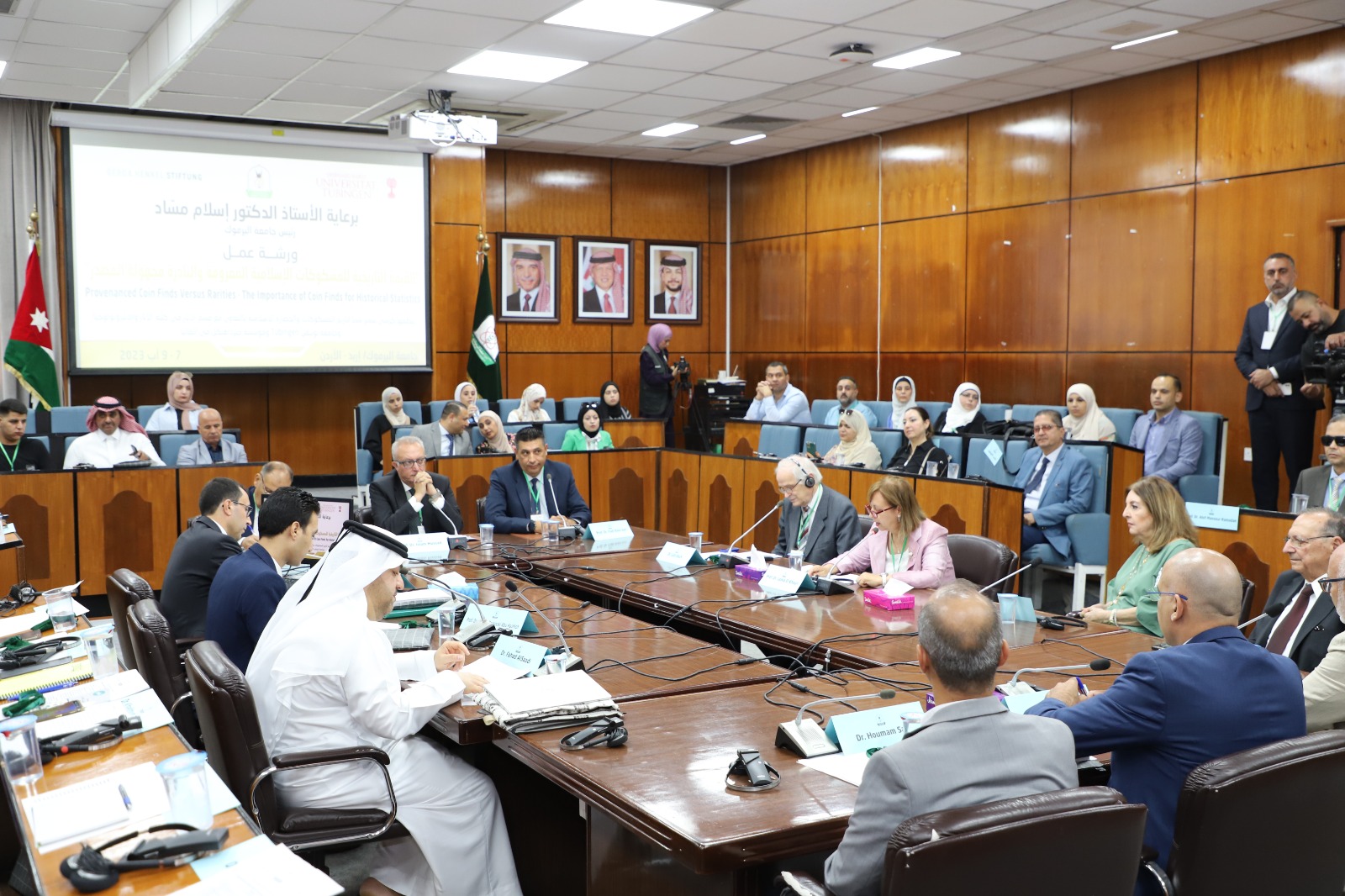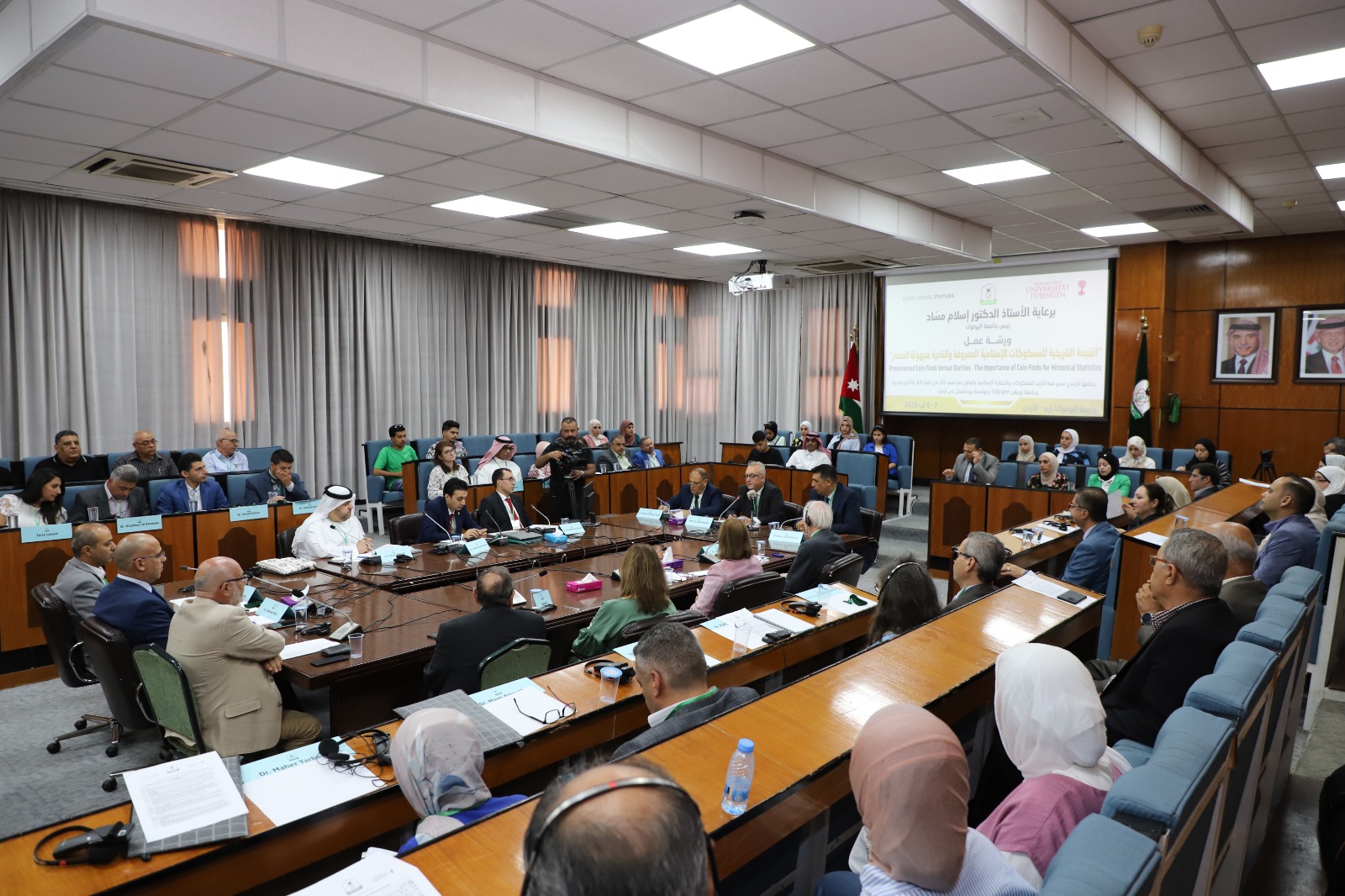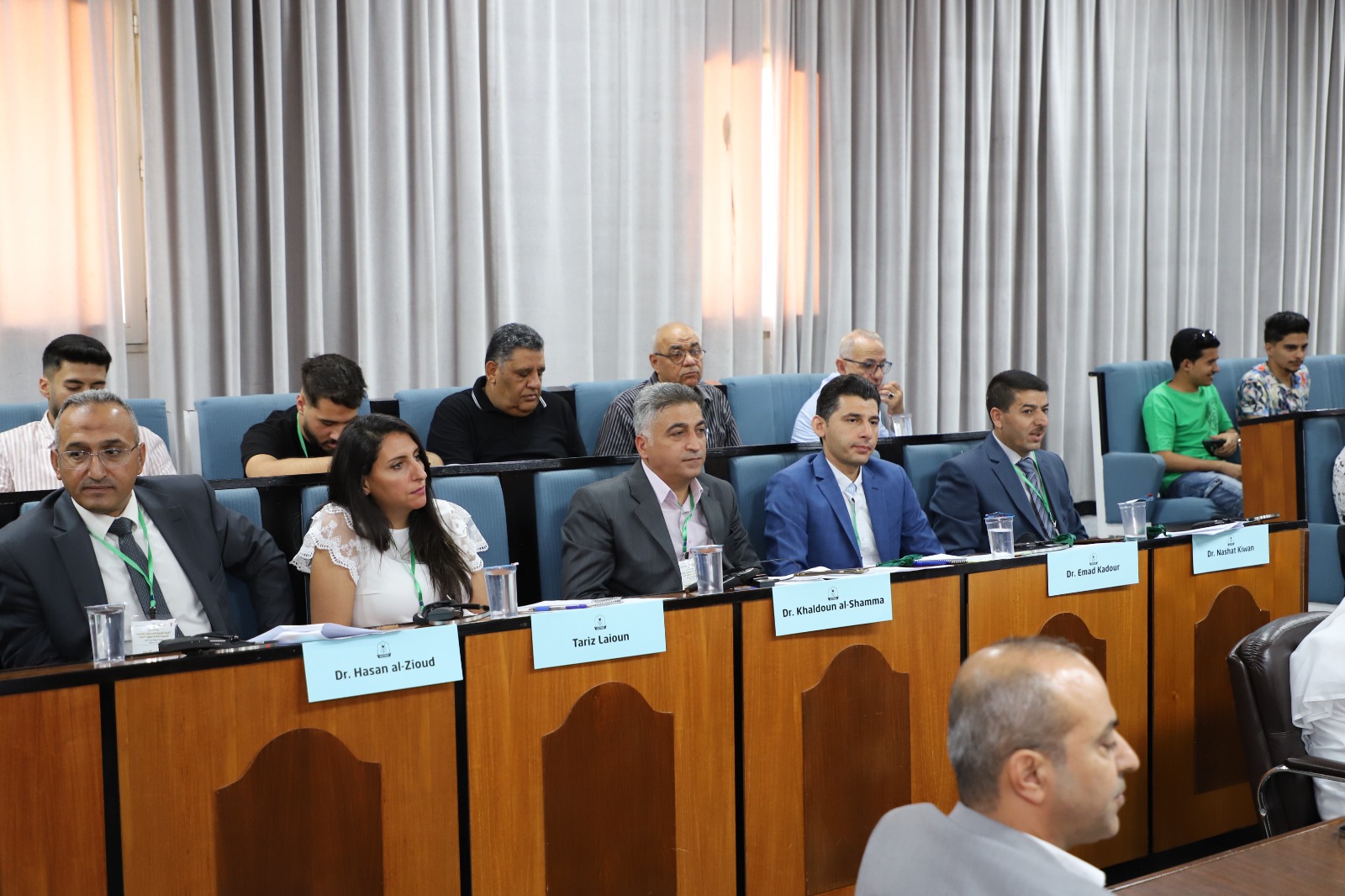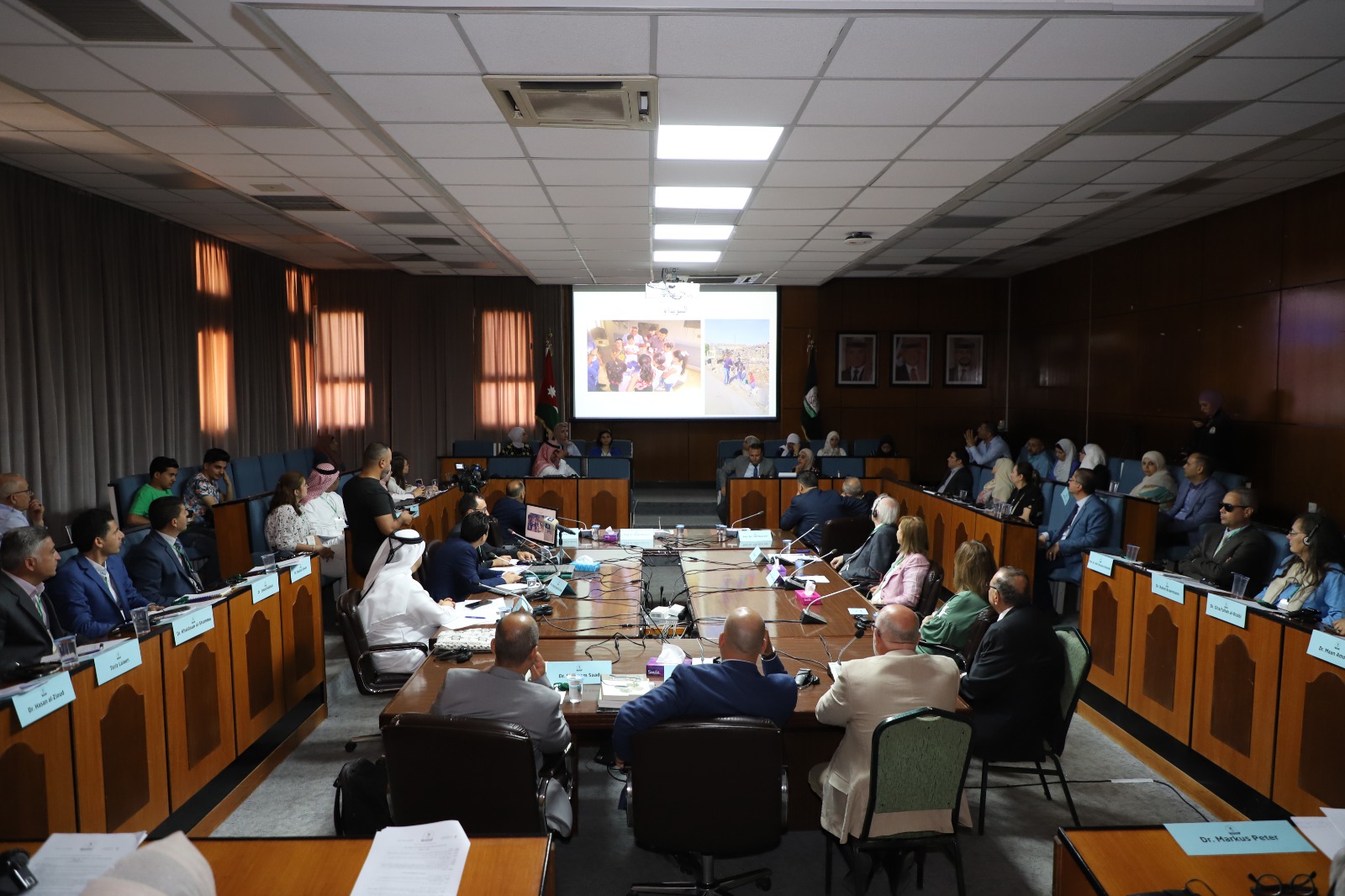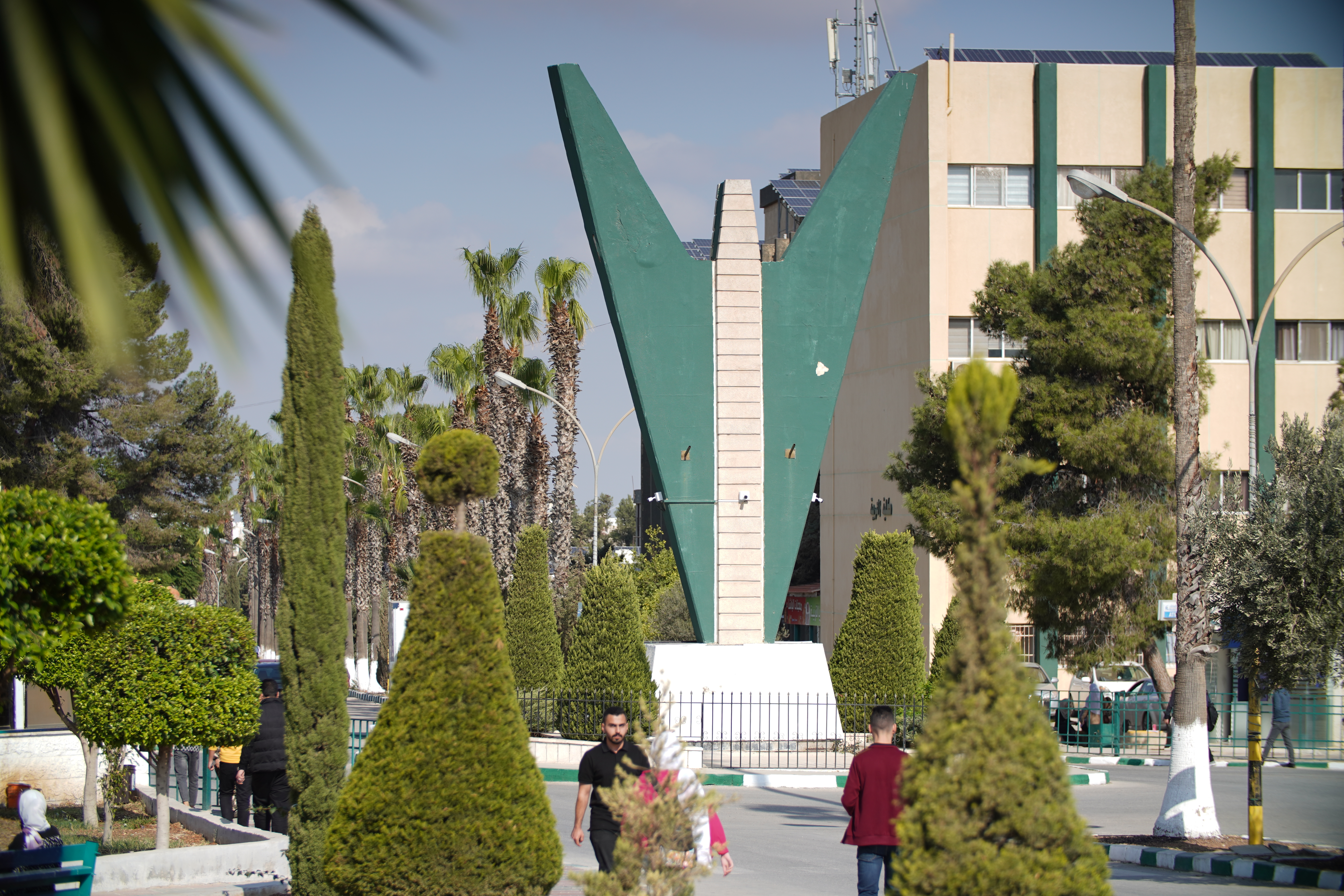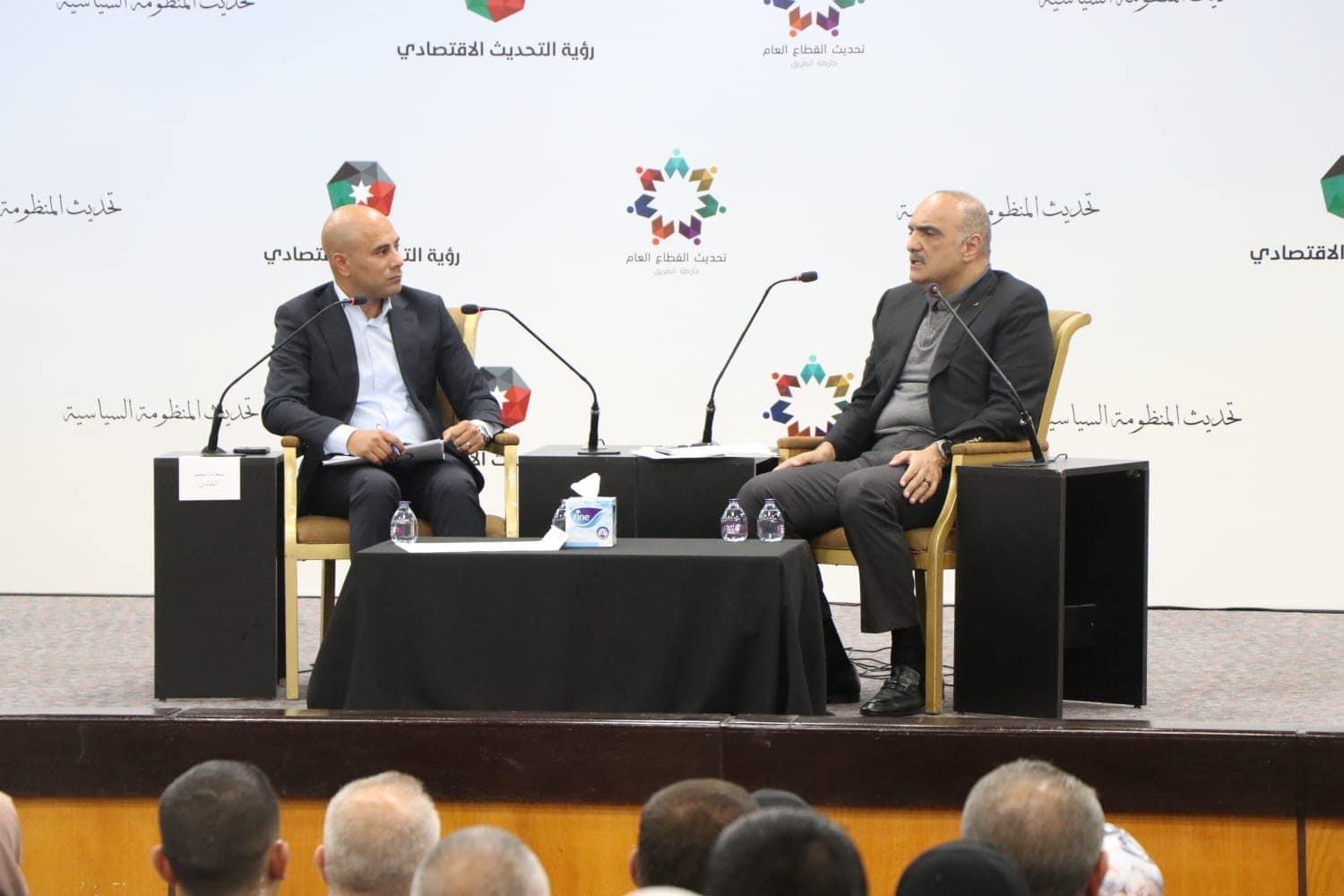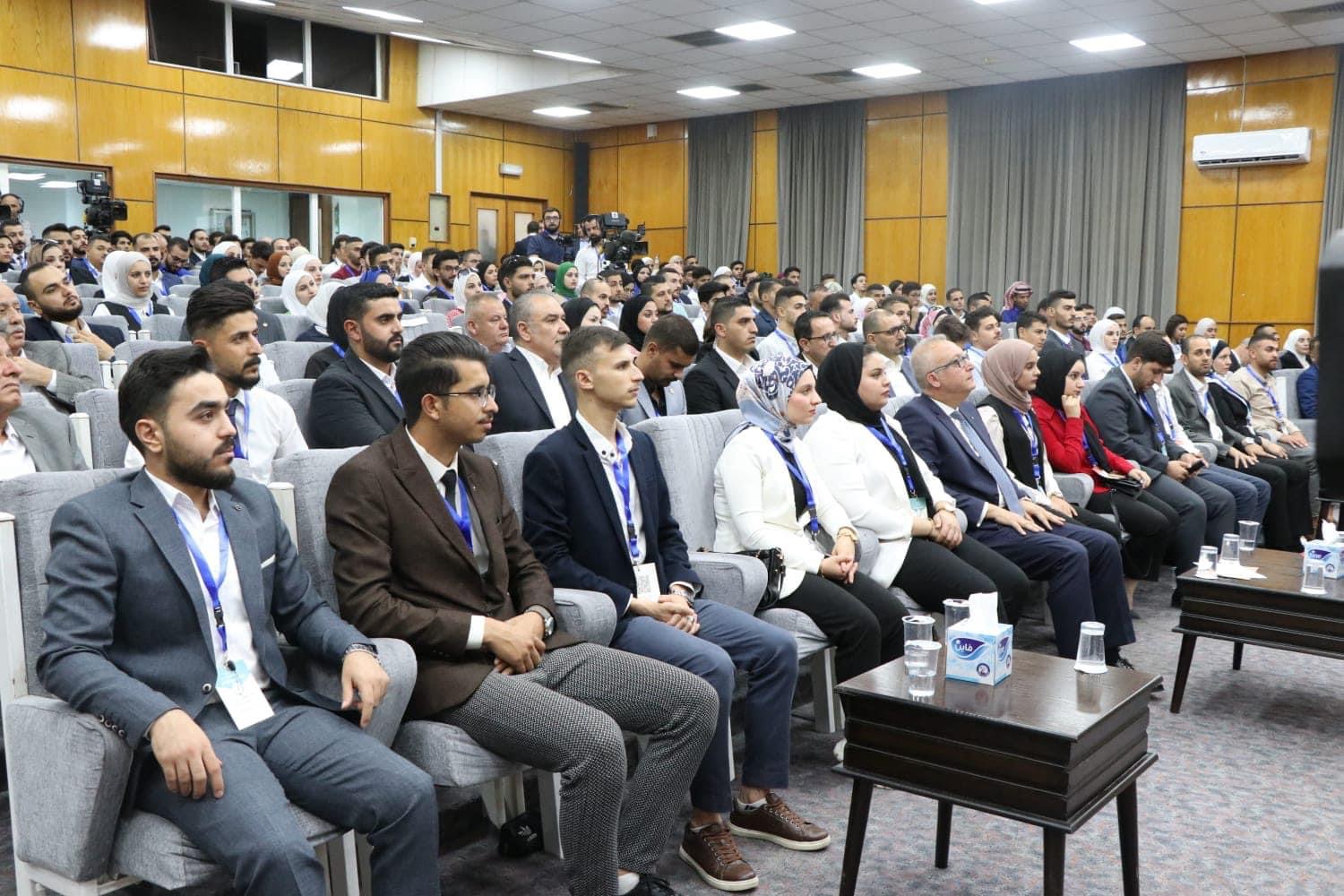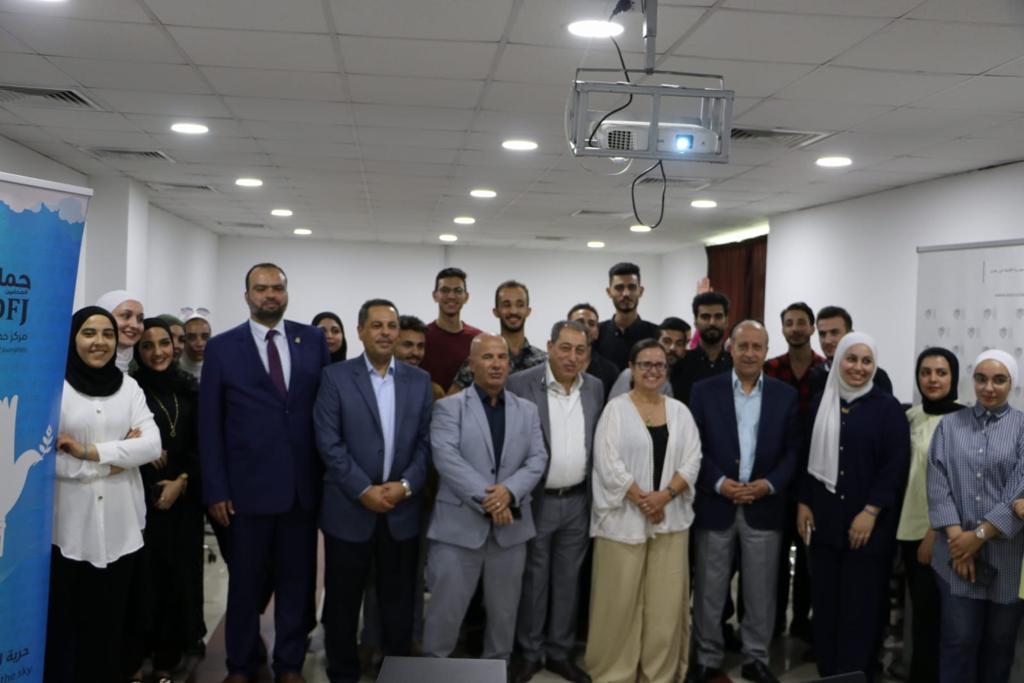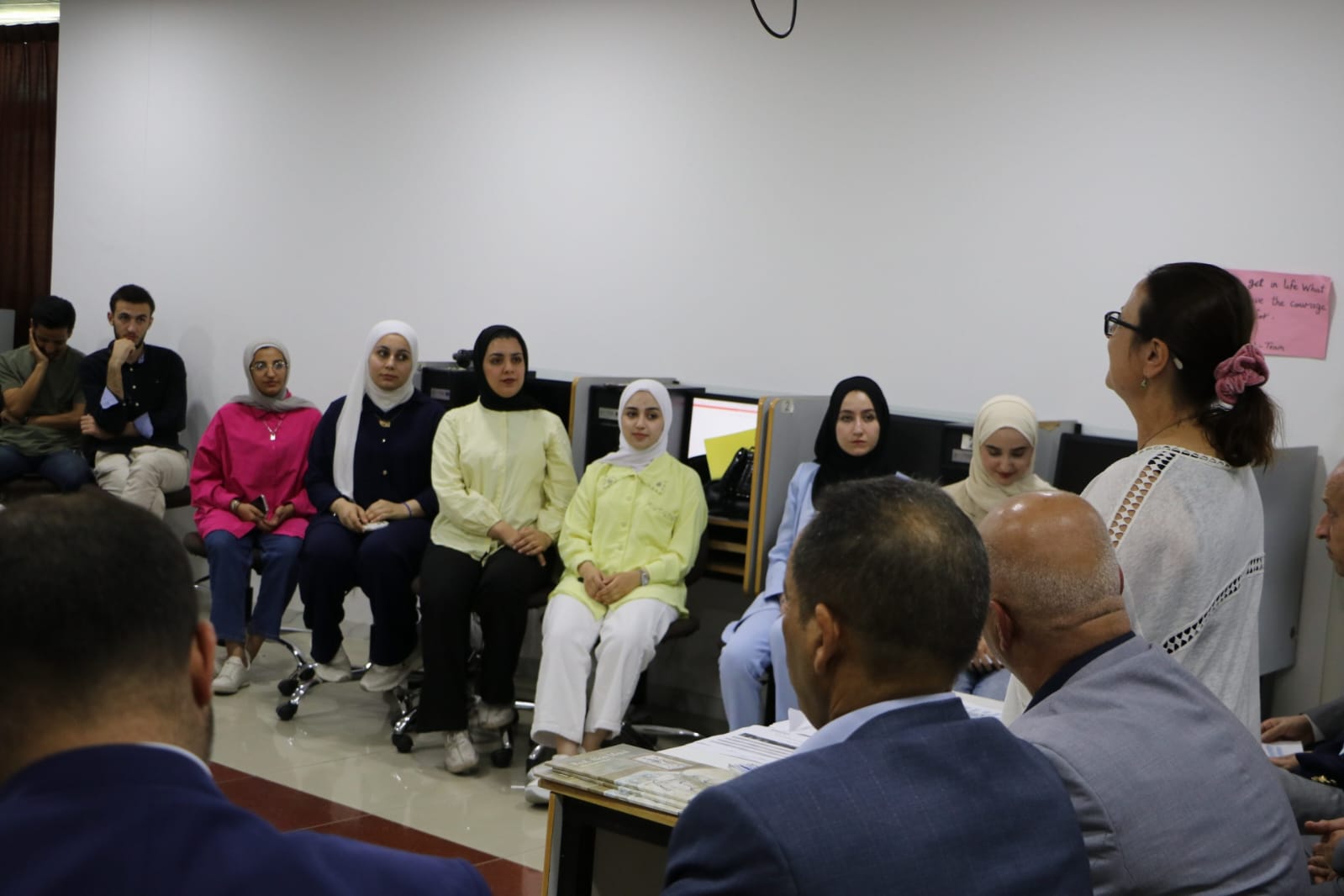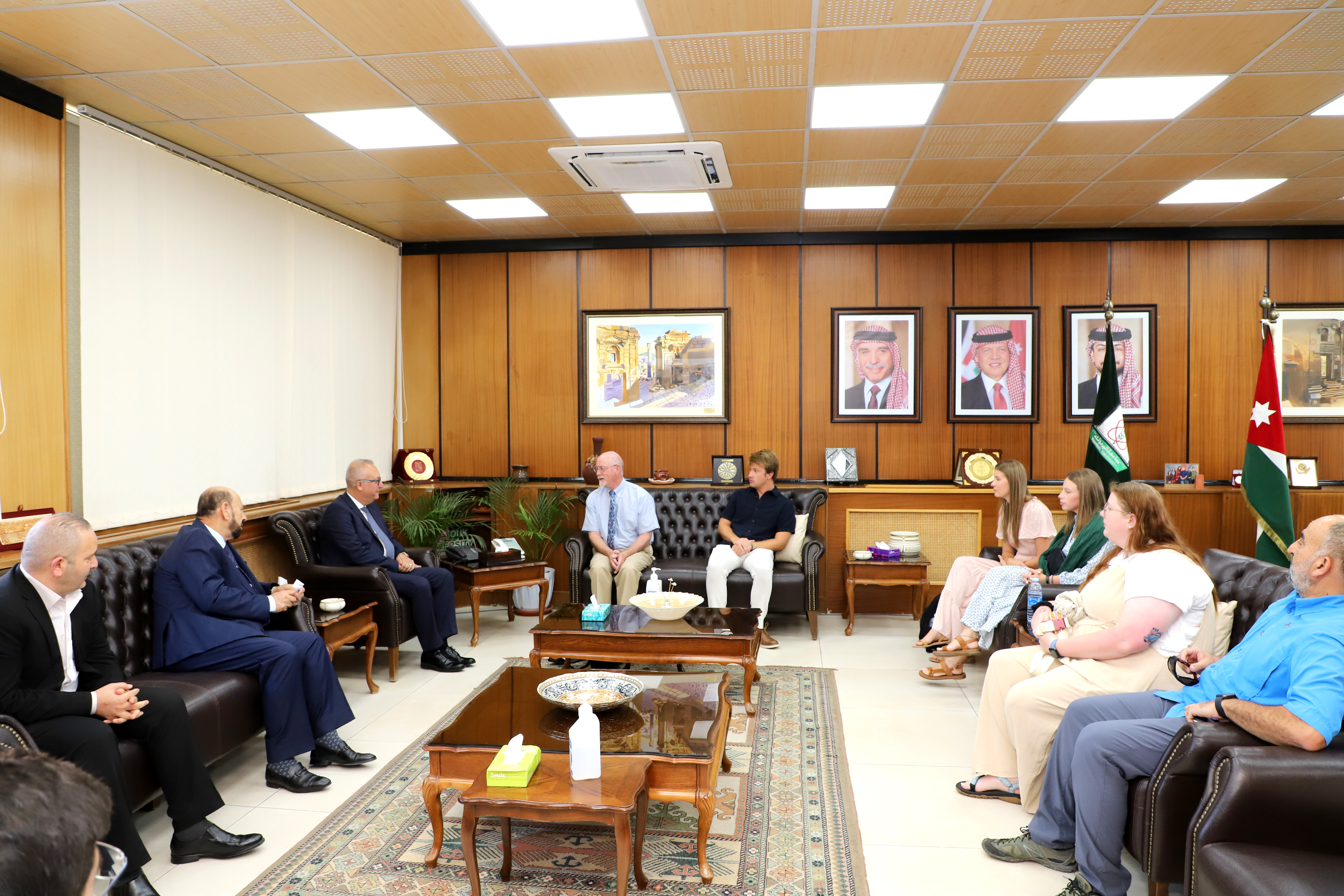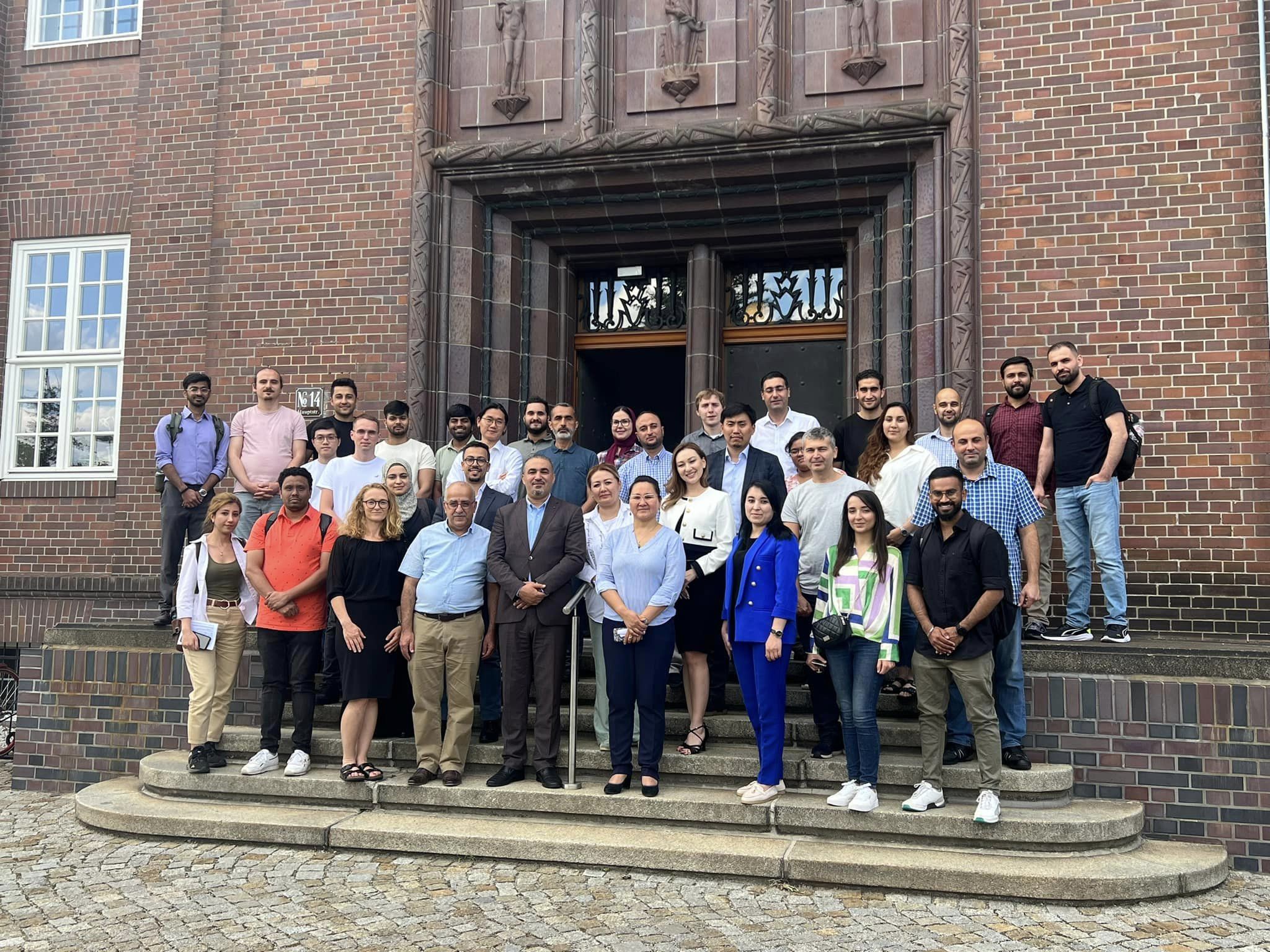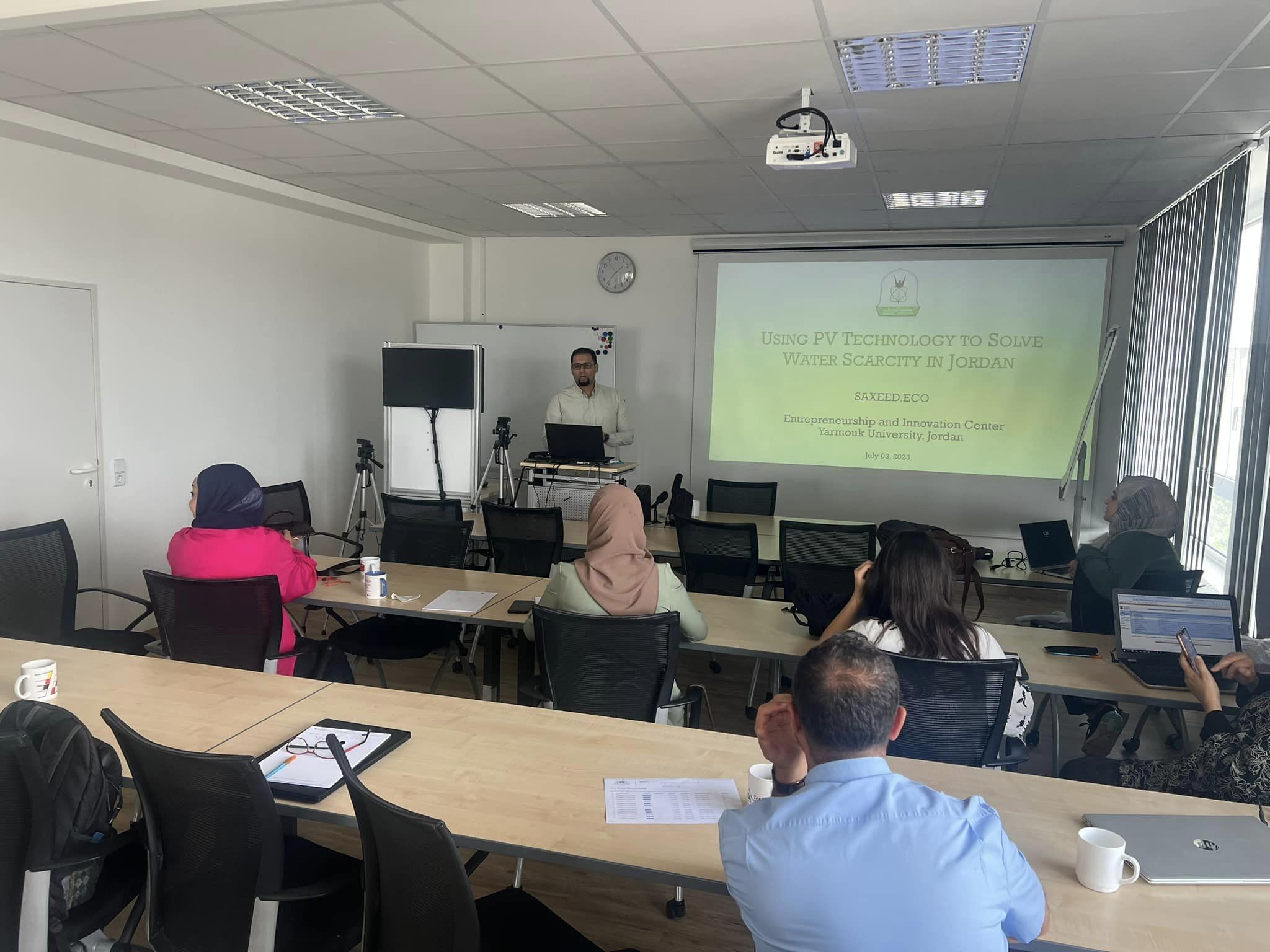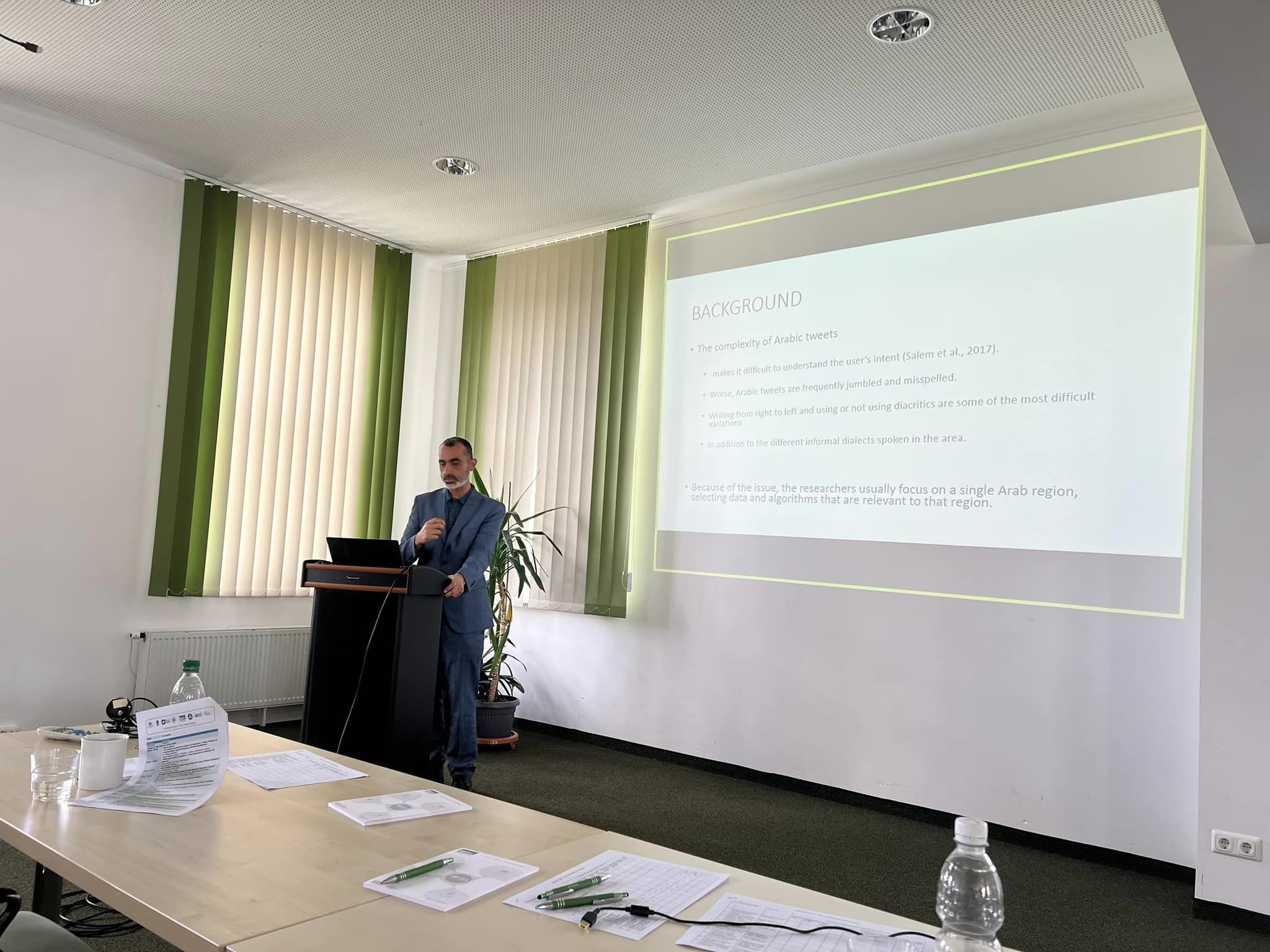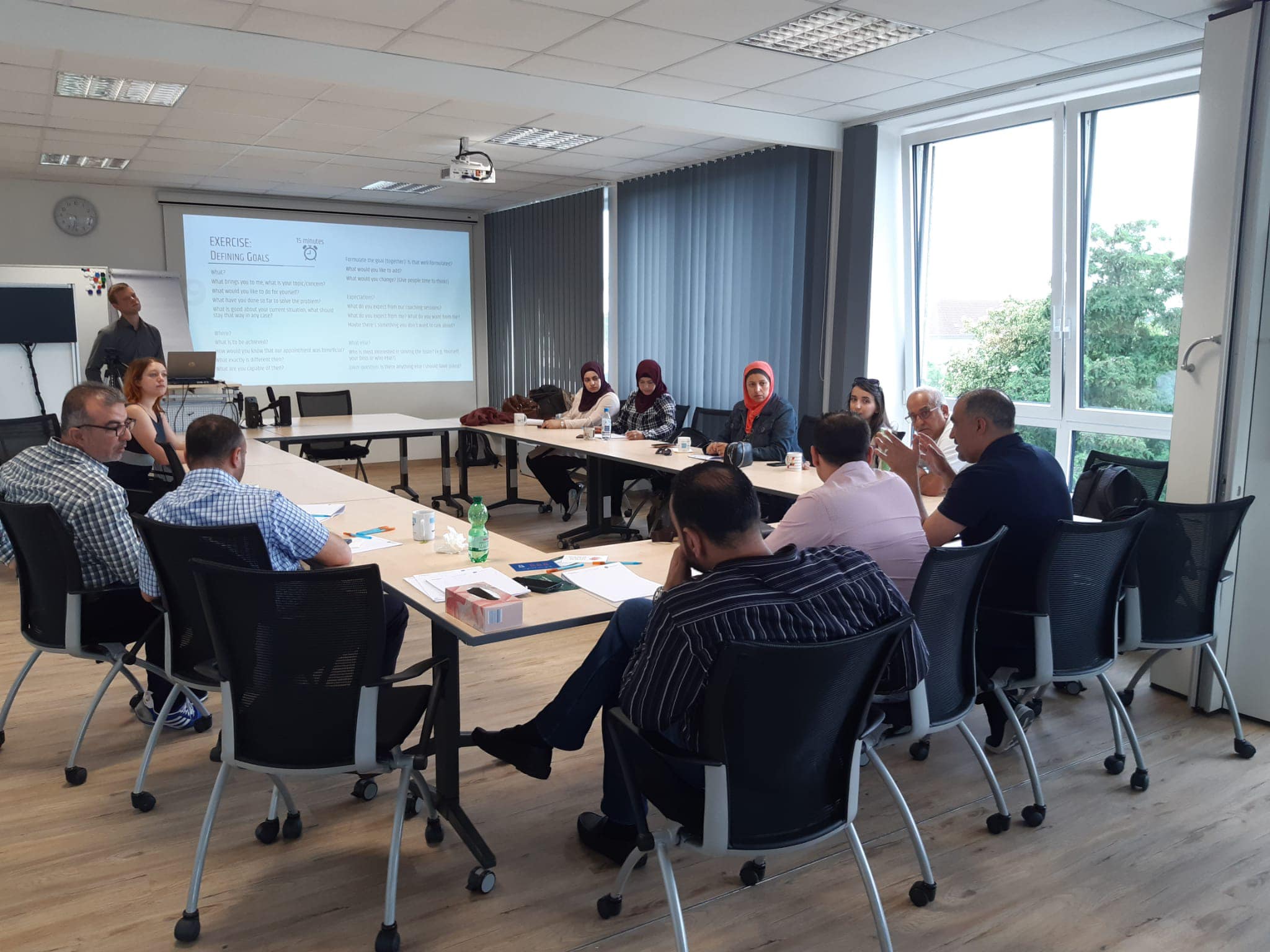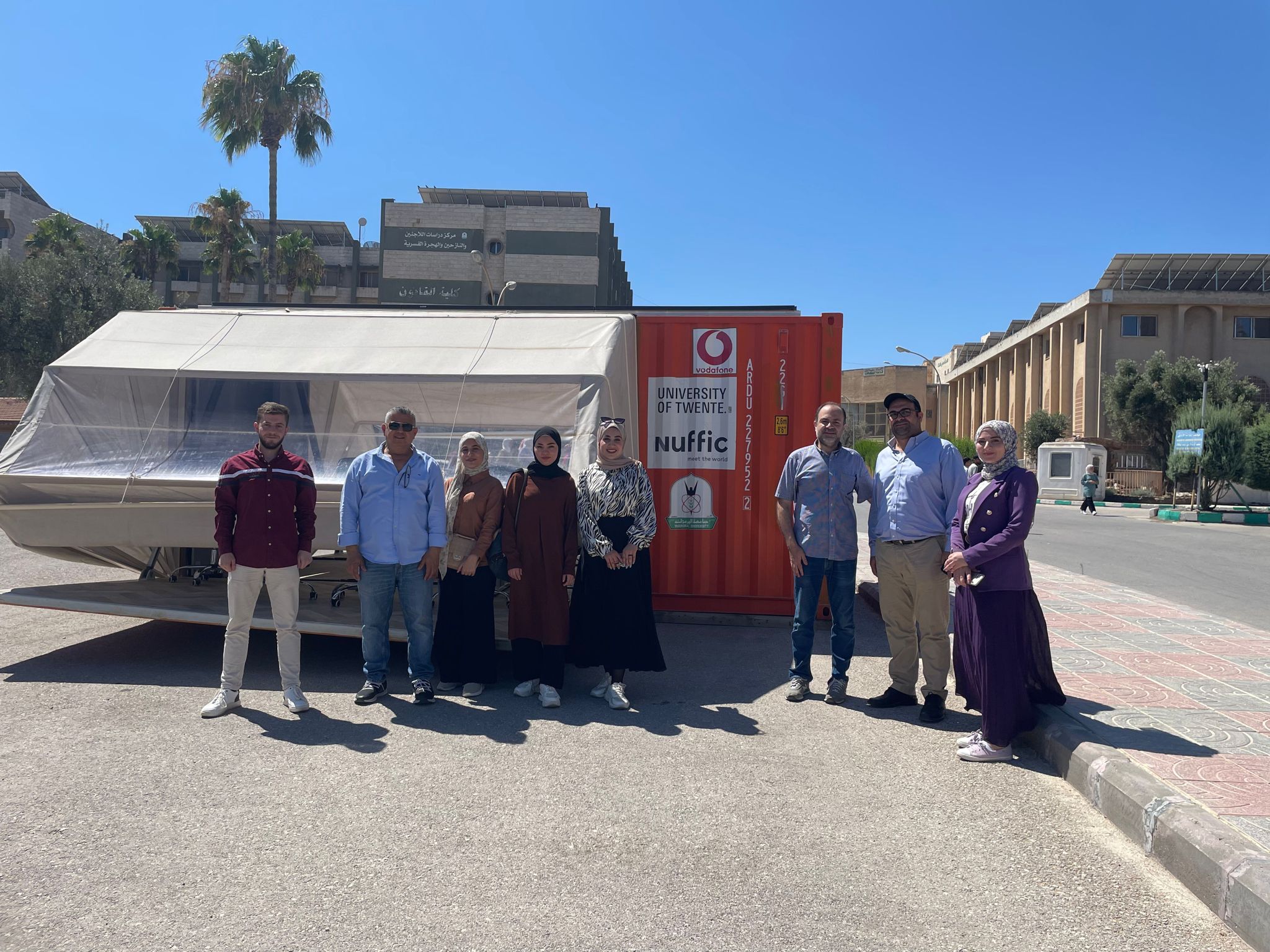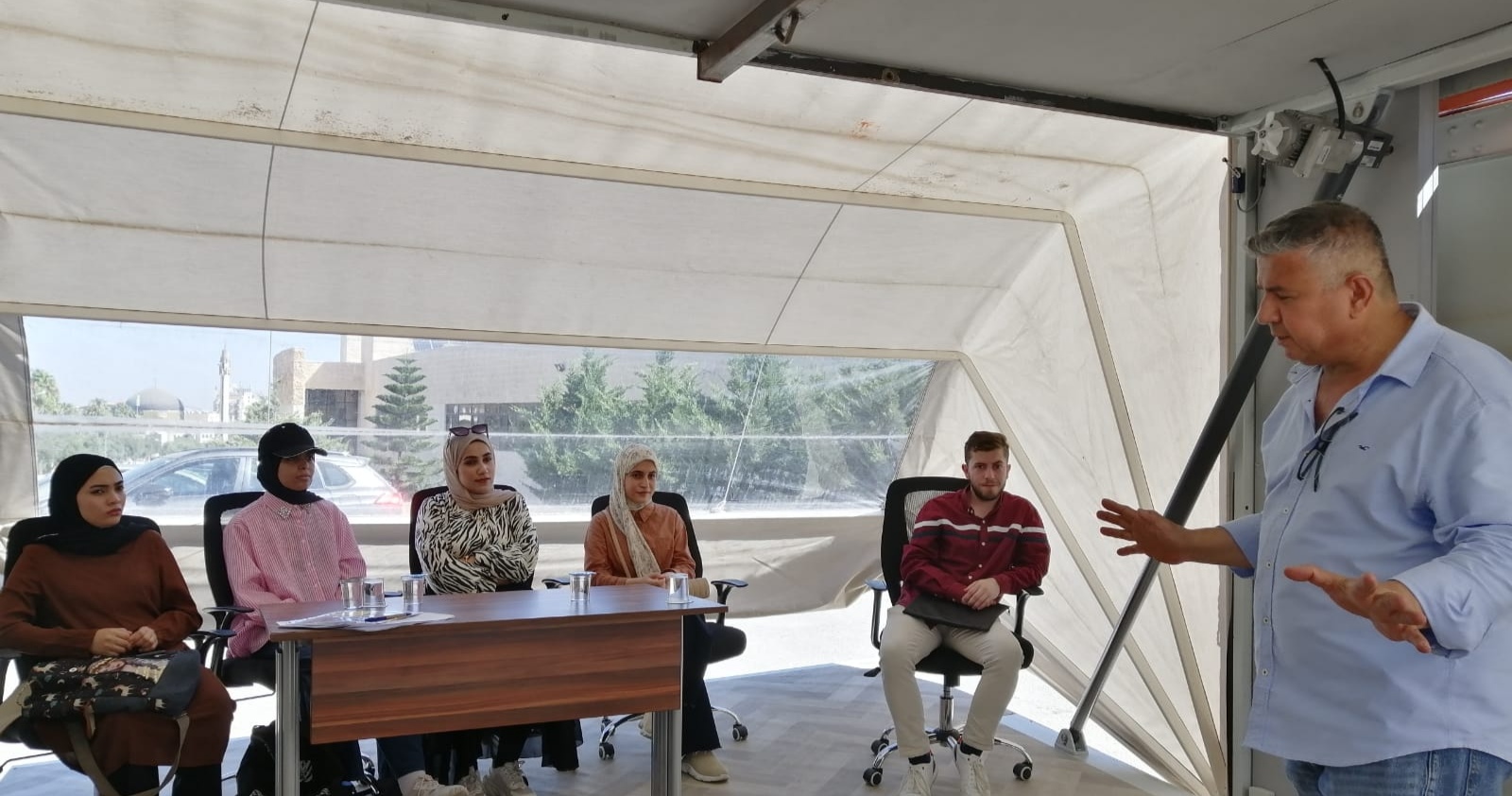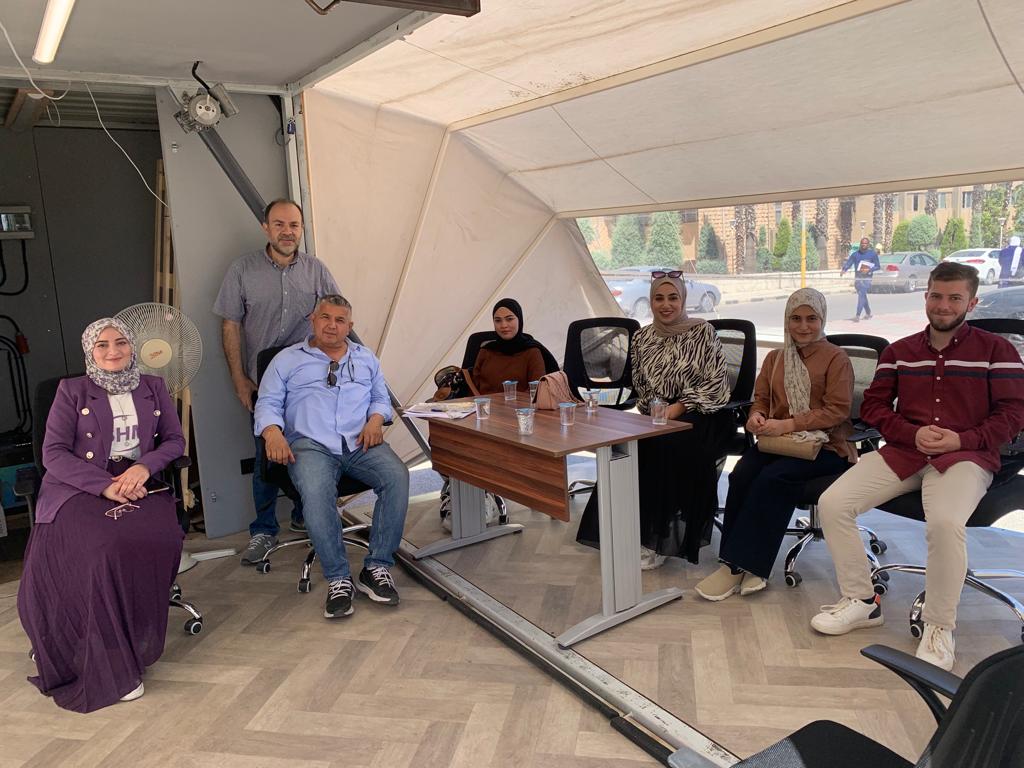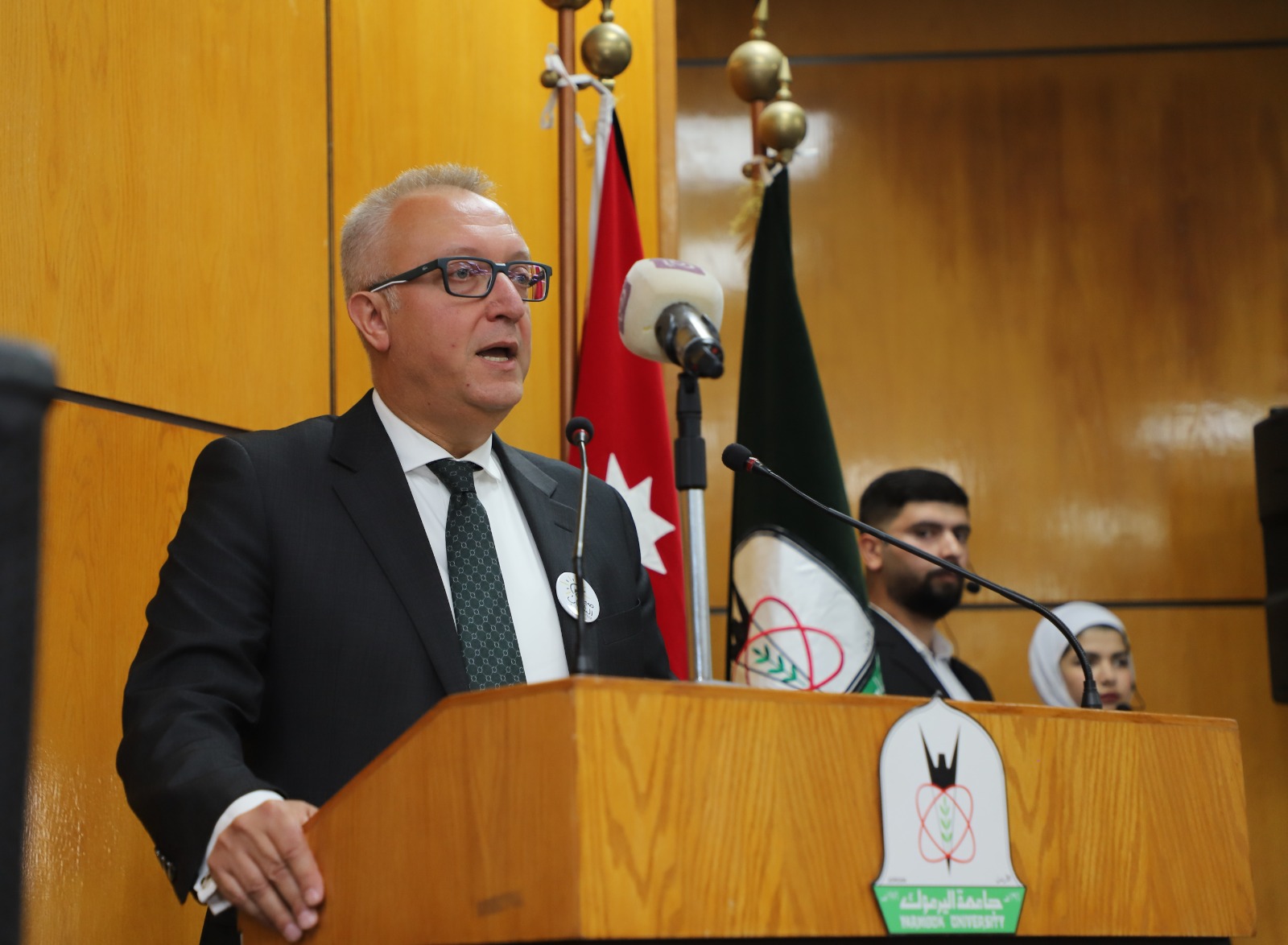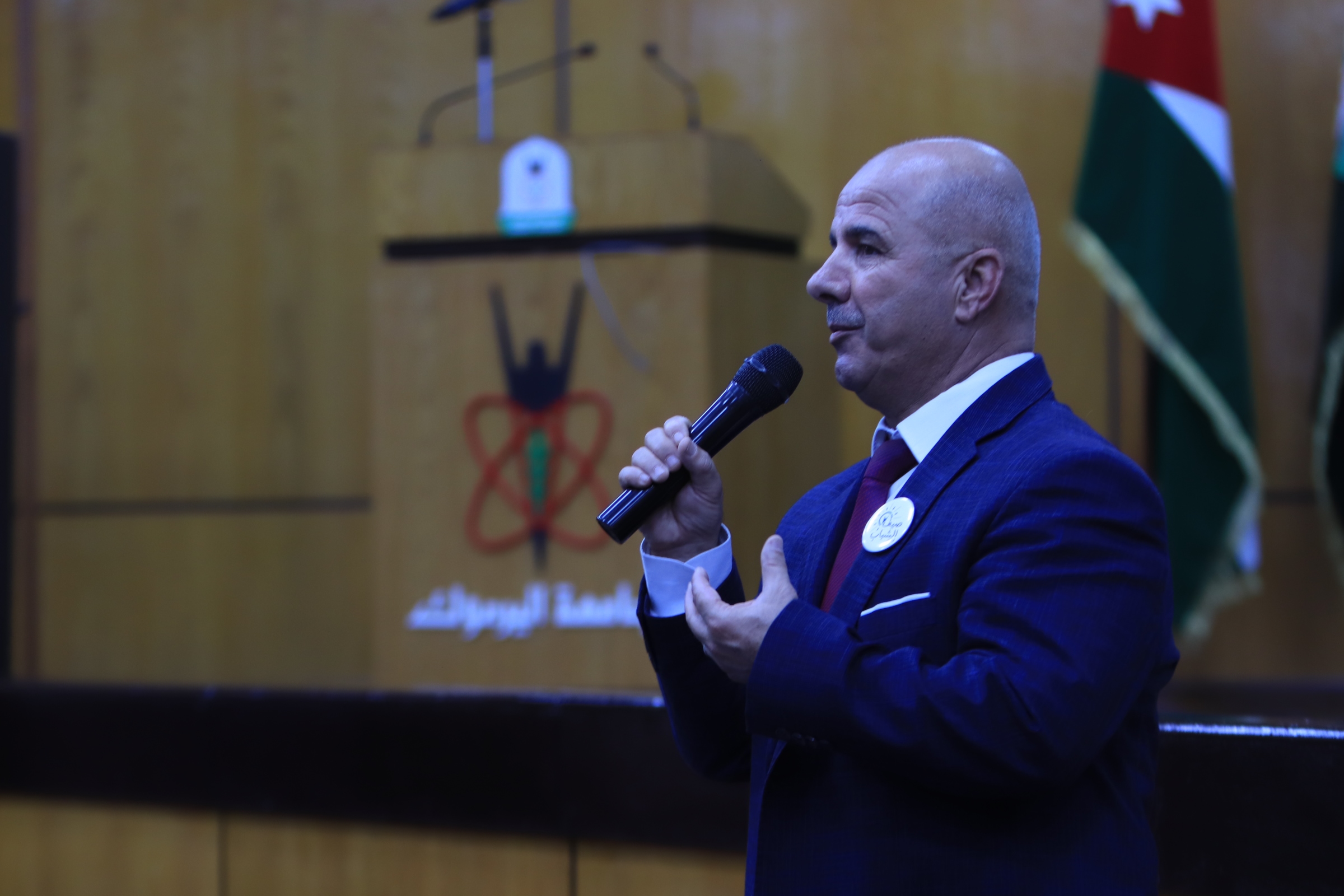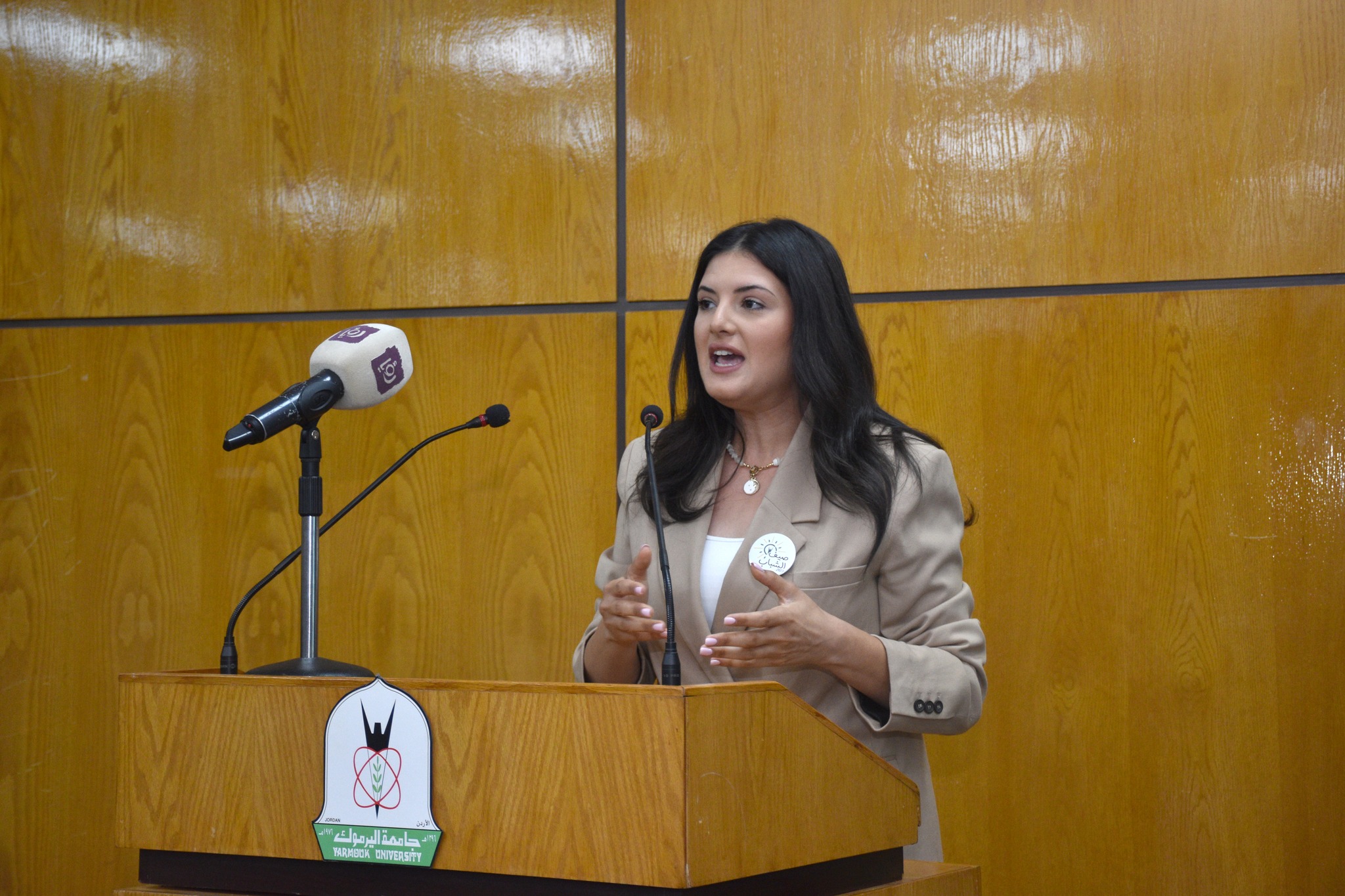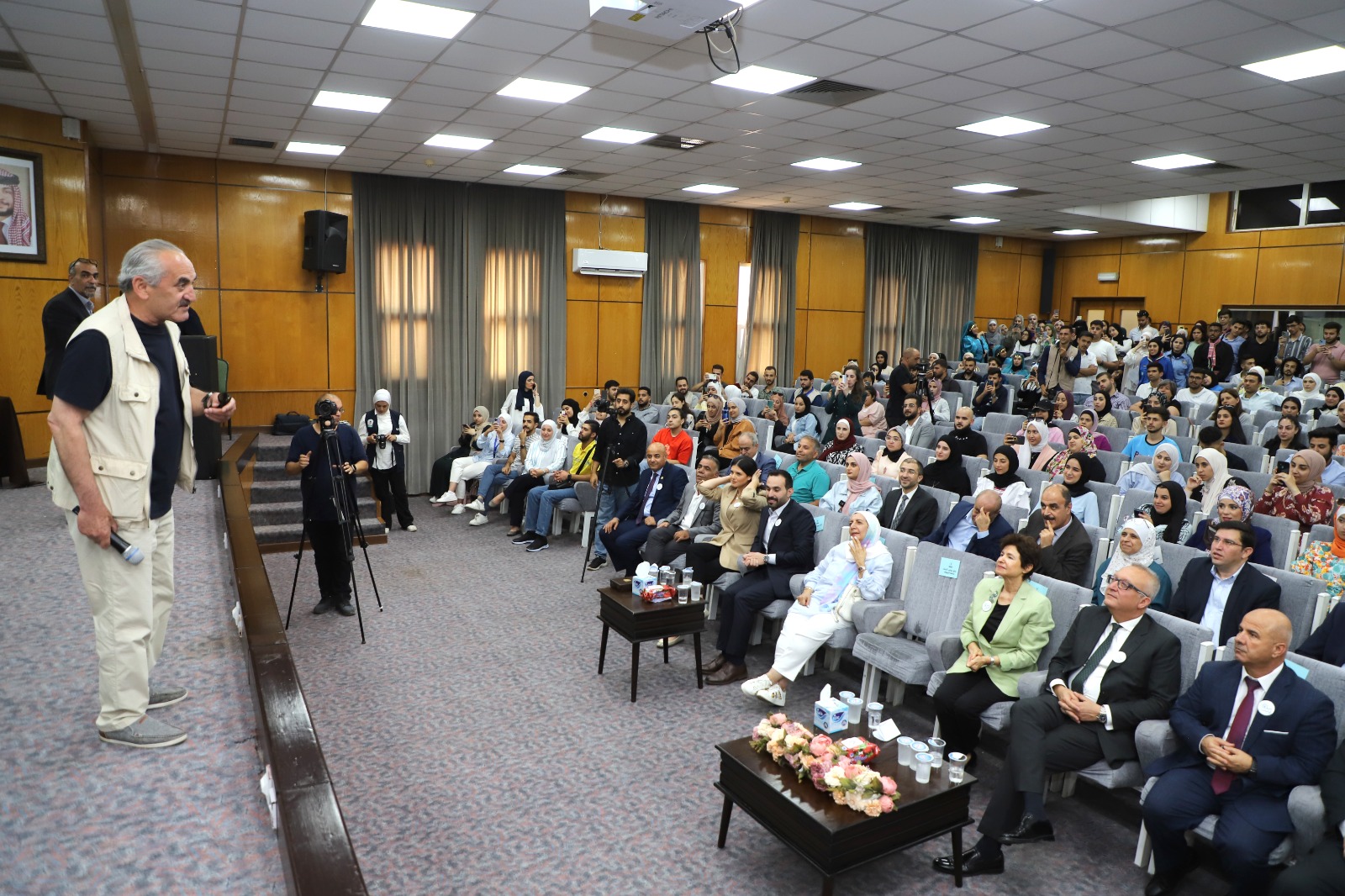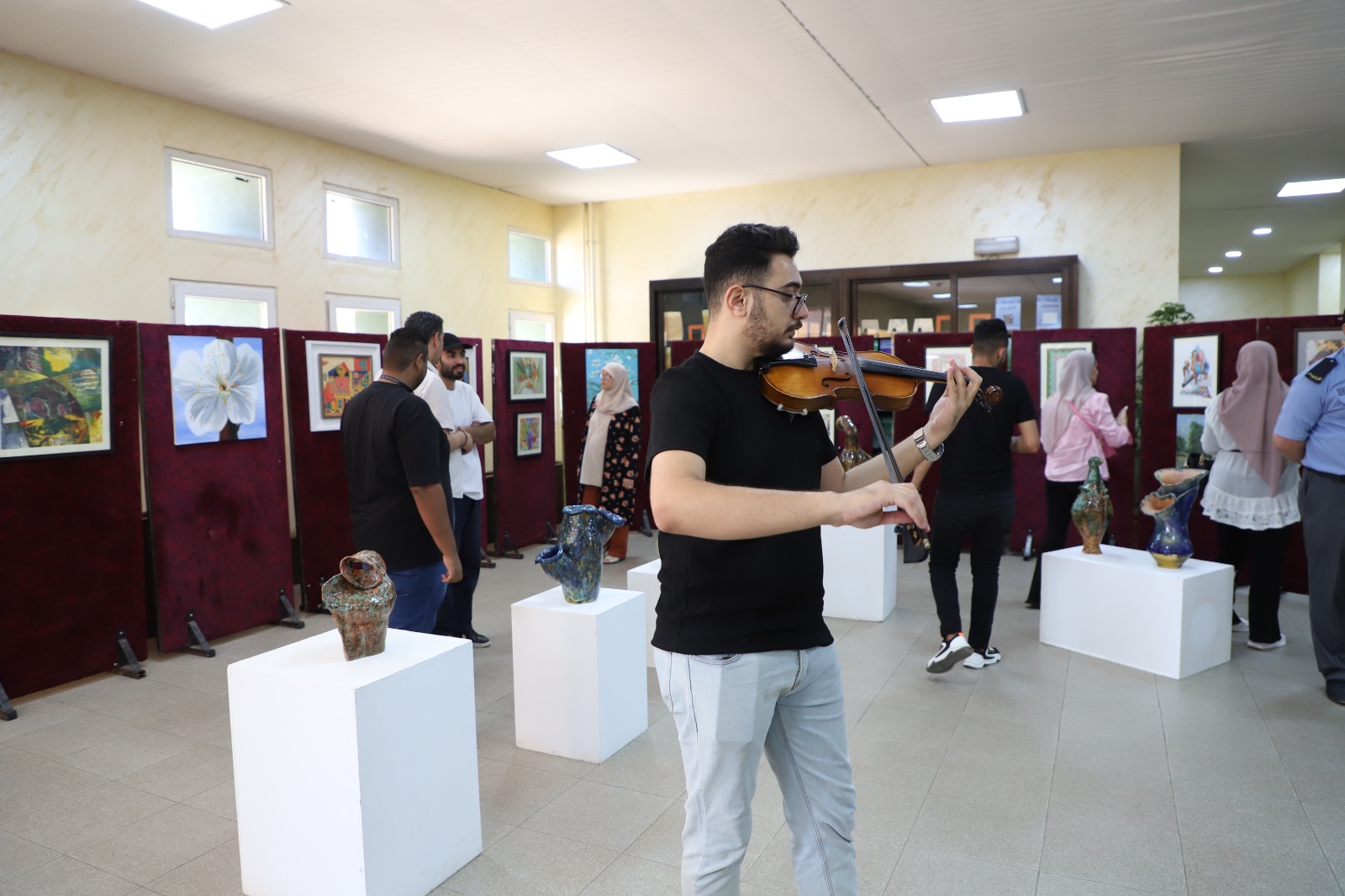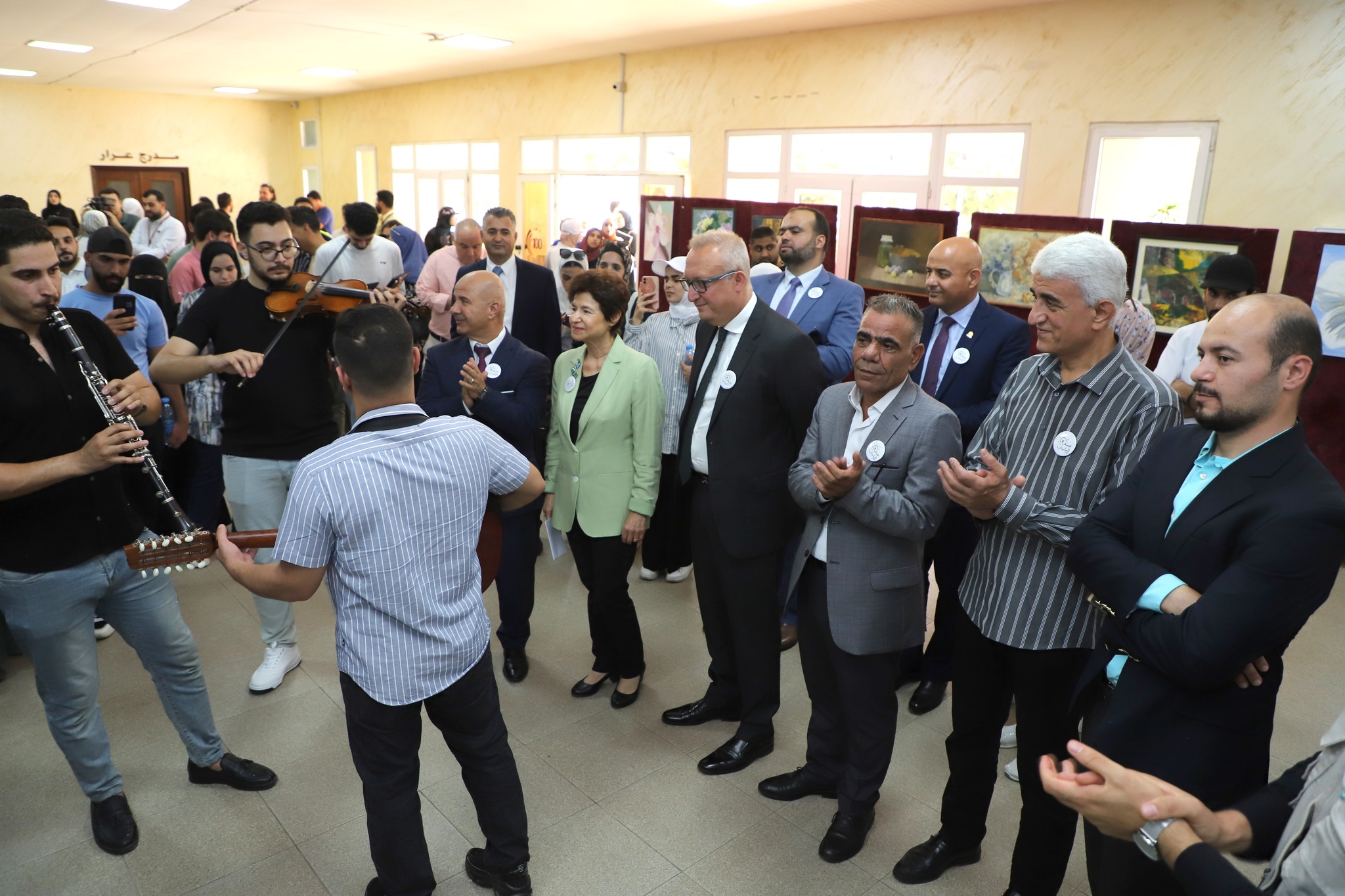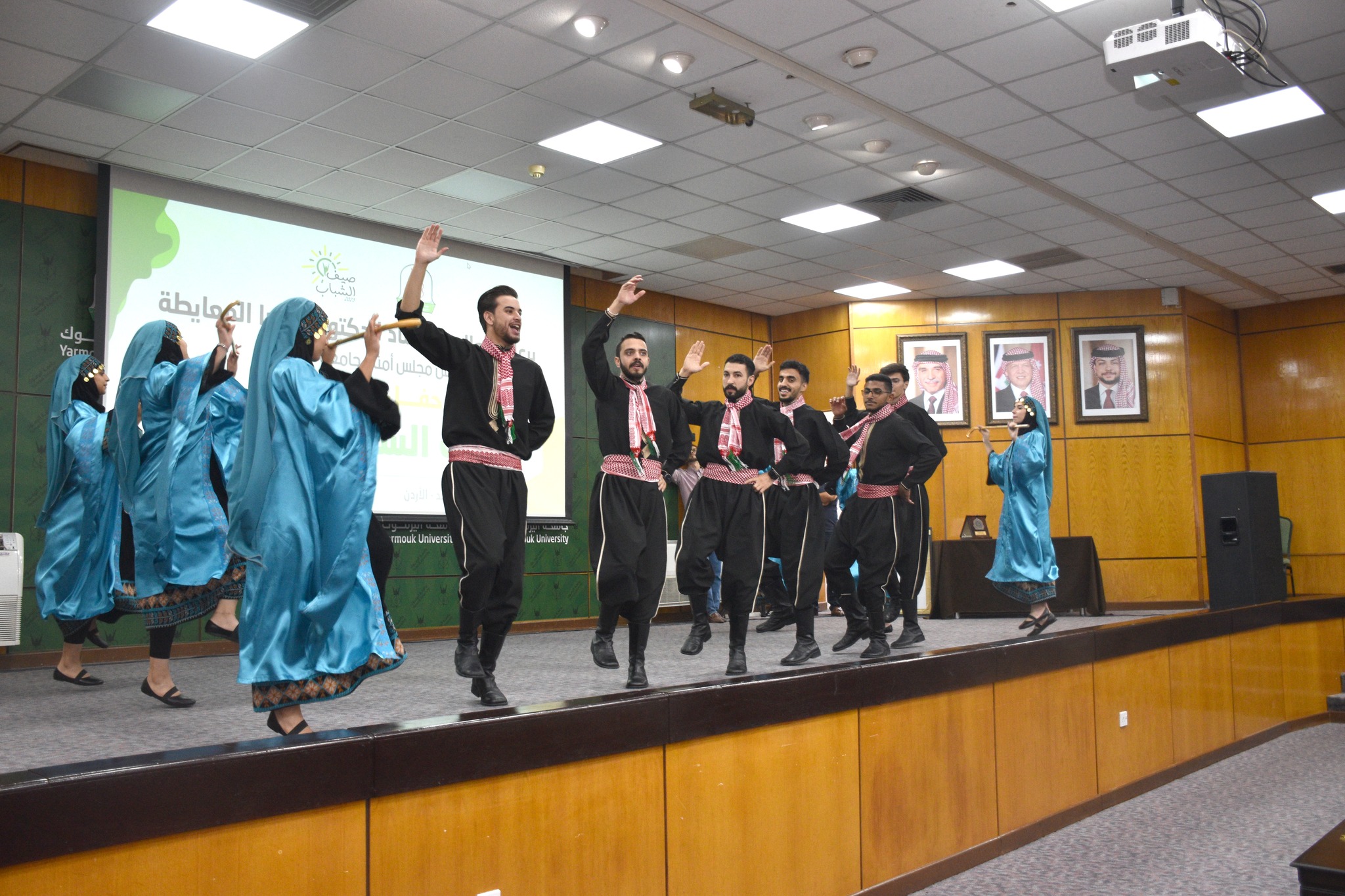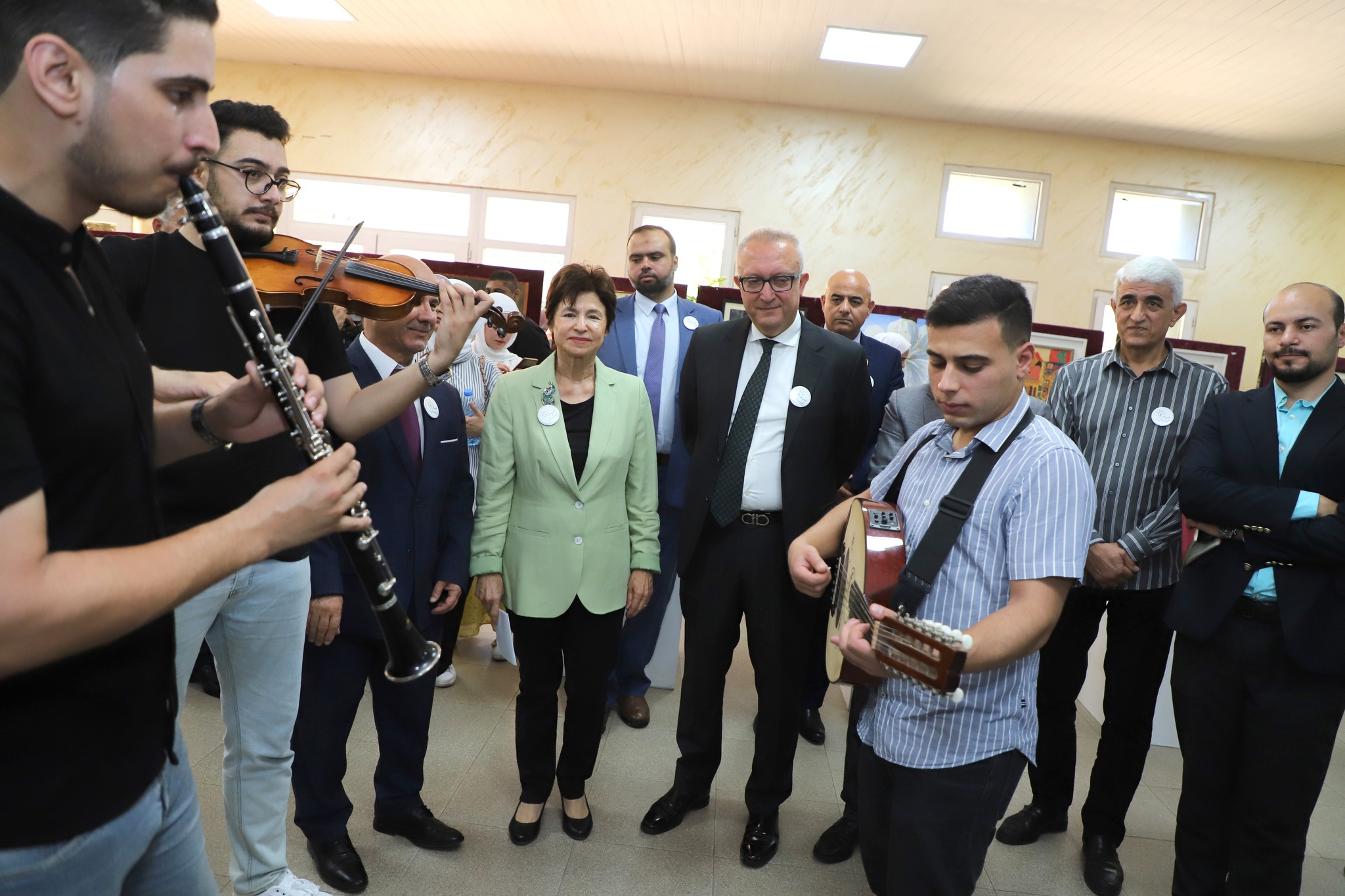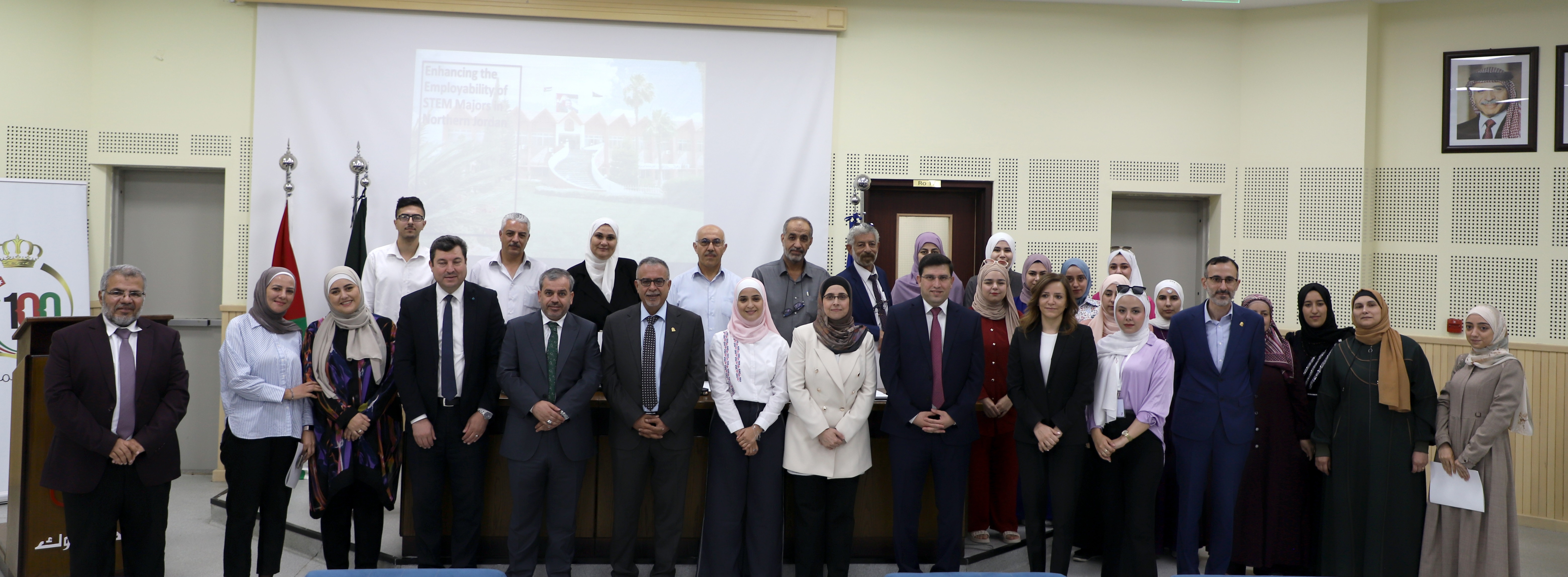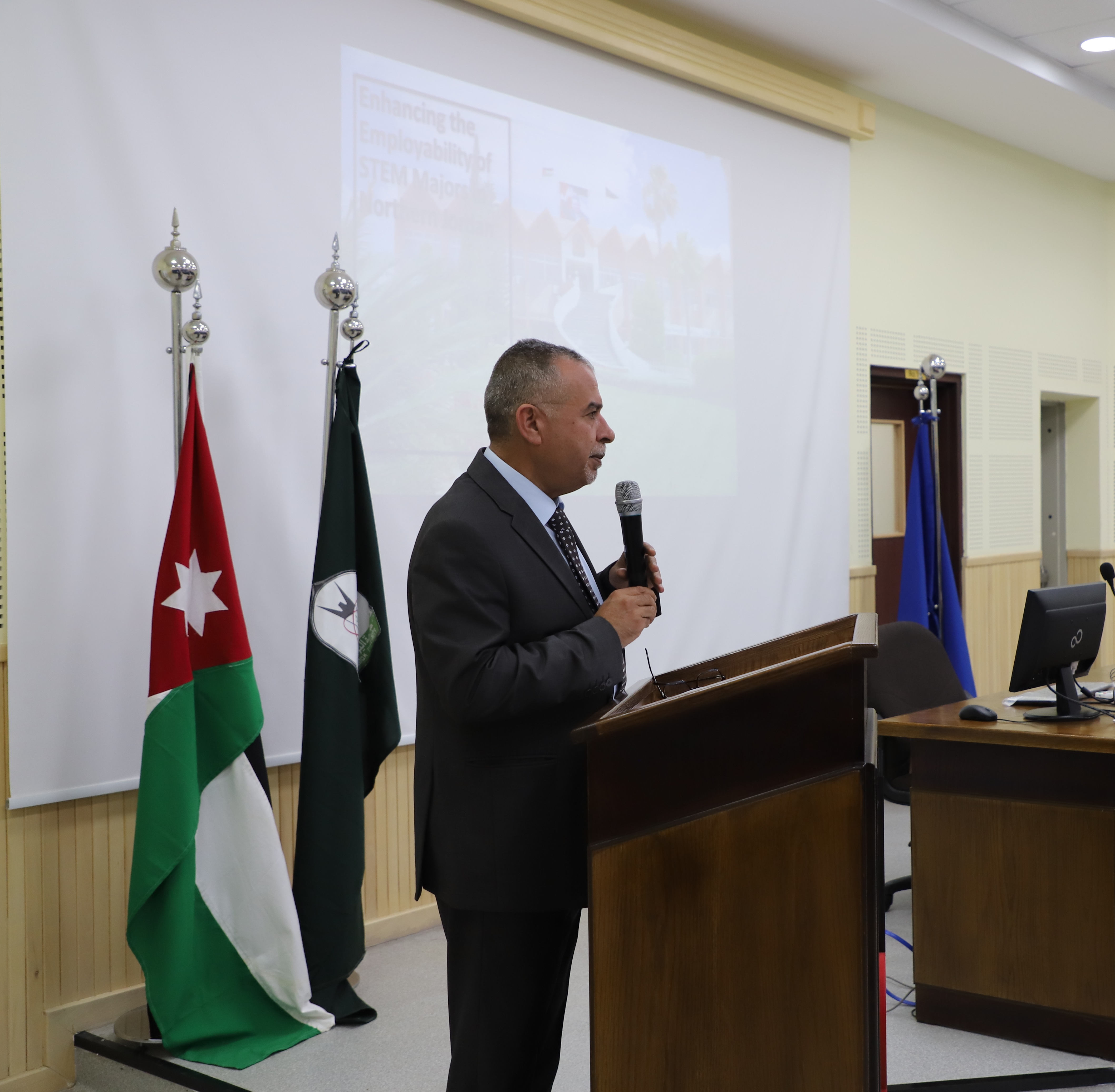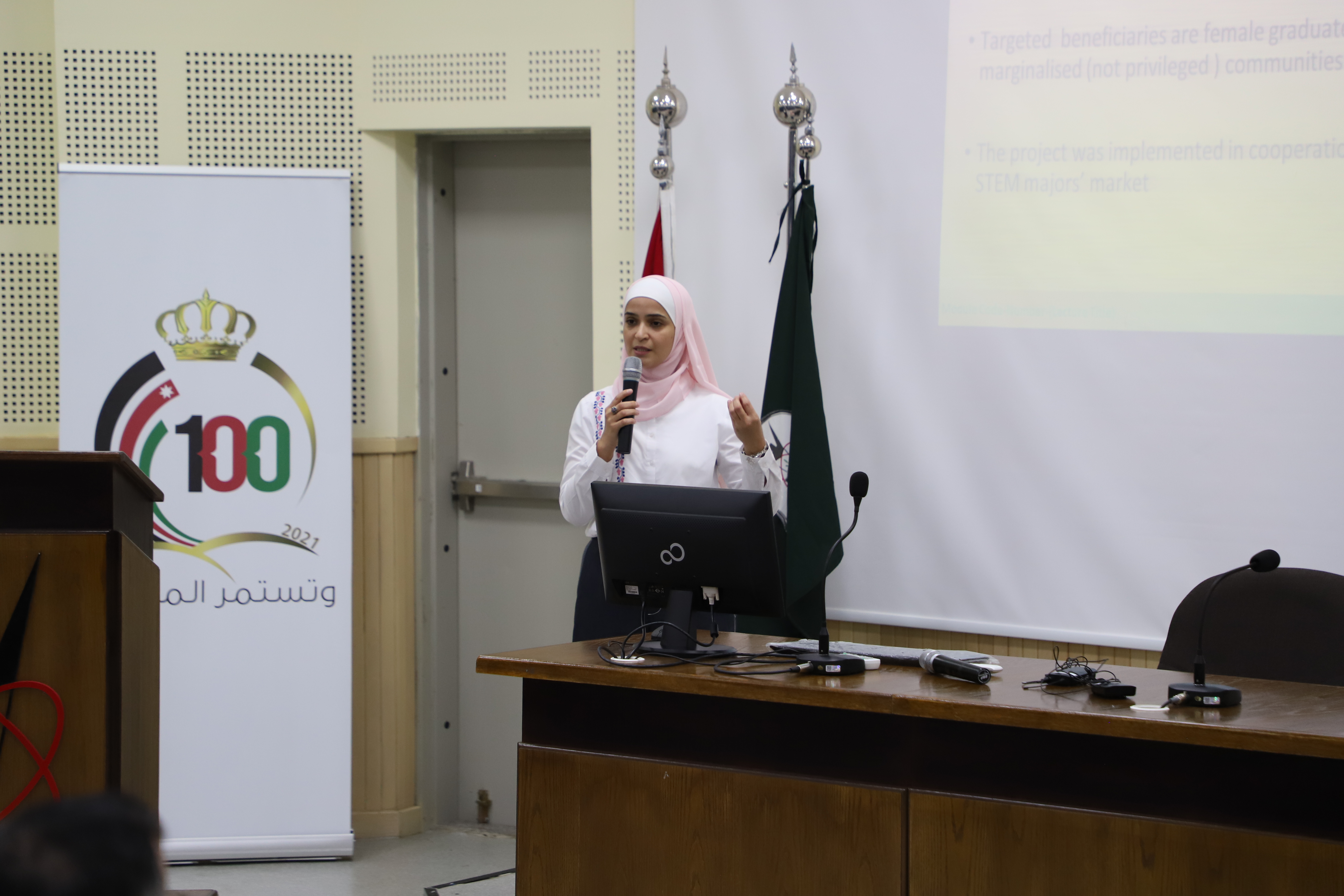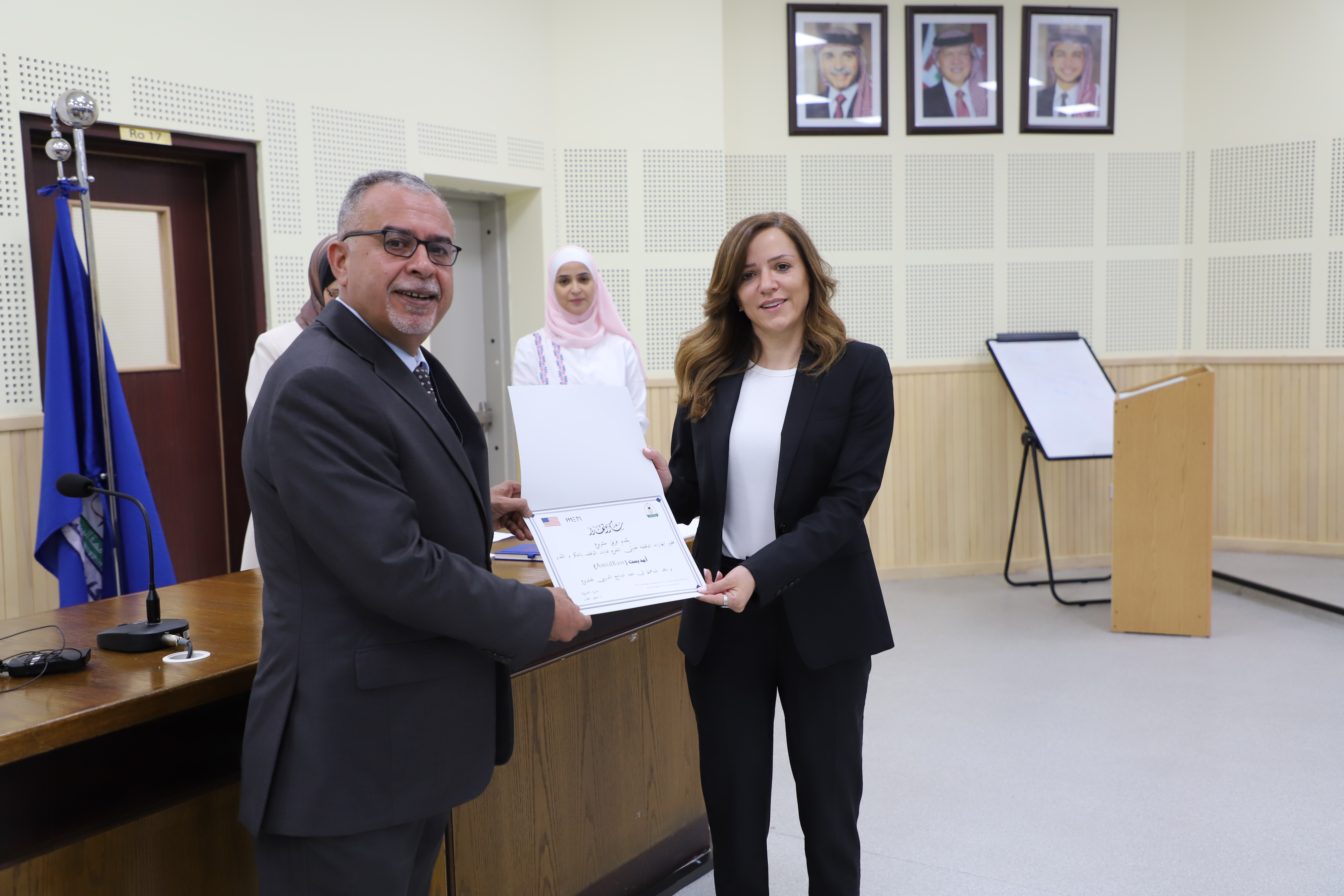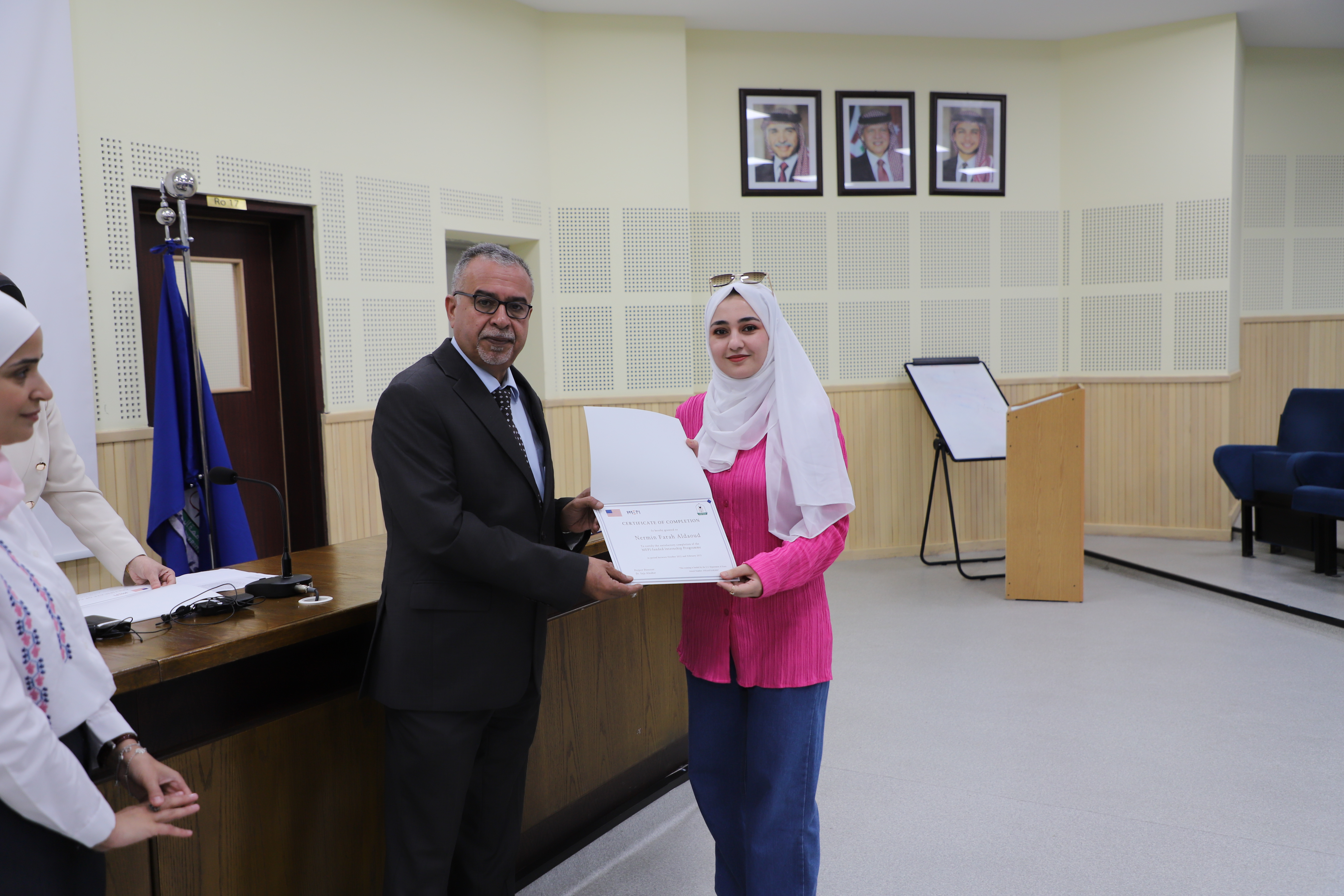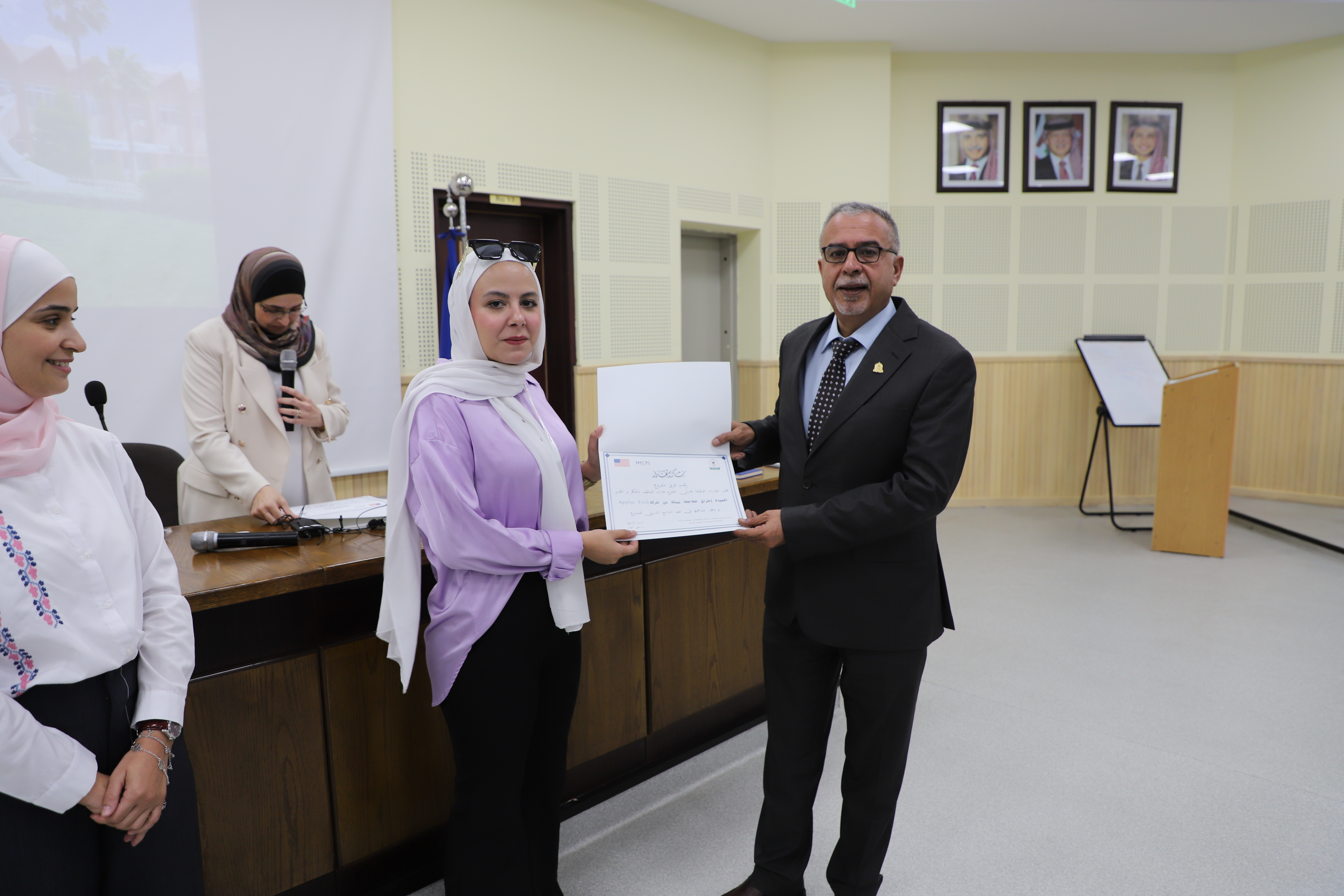

The President of Yarmouk University, Professor Islam Massad, sponsored the inauguration of the activities of the workshop “Provenanced Coin Finds Versus Rarities – the Importance of Coin Finds for Historical Statistics”, which was organized by Samir Shamma Chair for the History of Numismatics and Islamic Civilization at the University, in cooperation with the Department of Archeology at the Faculty of Archeology and Anthropology, the German University of Tübingen, and the Gerda Henkel Stiftung Foundation in Germany. The inauguration ceremony took place in the presence of the Director General of the Jordanian Department of Antiquities, Dr. Fadi Balawi, the Director General of Antiquities and Museums in Syria, Mr. Muhammad Nazeer Awad, the founder of the Islamic Numismatics Research Center at the University of Tübingen, Dr. Lotus Alish, and Dr. Alaeddin Al-Shomari from the Islamic Numismatics Research Center at the University of Tübingen.
At the beginning of his speech, Massad emphasized his pride in the Faculty of Archeology at Yarmouk University, emphasizing that its academic staff has always proven their scientific and research excellence through their distinguished partnerships with researchers and specialists from different countries of the world, as evident in the fact that the Faculty is classified among the top 250 faculties of Archeology in the world. He then pointed out that holding such workshop specialized in numismatics confirms the University's interest in historical studies, numismatics in particular. He also emphasized that a person's love for his homeland and its capabilities, including antiquities and heritage, is considered part of good citizenship, as a person finds himself forced to defend the history of his country's heritage and civilization to ensure its survival, thus enabling future generations to learn about this legacy, stressing the need for archaeologists and anthropologists to cooperate with specialists and researchers from other sciences such as sociology, history, natural sciences, and engineering. Massad also called on the participants in the workshop from different countries to come up with recommendations that are applicable on the ground and have a positive impact on numismatics and the mechanisms for its development.
For his part, Al-Balawi stressed the importance of numismatics and its study, considering that a lot of historical information was corrected based on the study of numismatics, which had a great impact in presenting the most accurate and correct history of different civilizations. He then explained that the Jordanian Department of Antiquities is the authority authorized to protect and develop the cultural heritage of Jordan, in addition to its interest in providing archaeological, heritage and cultural information to the world. Moreover, he mentioned that the process of studying coins is witnessing many developments, as the Department of Antiquities kept pace with such changes through modern scientific and technological studies that helped the Department to obtain more information with less damage and to preserve the distinctive cultural heritage of coins.
Awad said that the importance of this workshop stems from its being held in exceptional circumstances witnessed by the region in the last few years, explaining that the repercussions of difficult conditions in Arab countries greatly affected their cultural heritage. He also pointed out that this important project, which was launched three years ago with the support of the German Gerda Henkel Foundation, contributed to raising awareness of the local community about the importance of coins and the valuable information they represent.
In his turn, Alish stressed the importance of studying coins to understand the history of nations and their civilizations, pointing out that Islamic coins appeared in the 13th century and that it is through such coins we infer the sequence of local rulers, caliphs and princes, as one coin could contain 60 words. He then pointed out that since the beginning of the 20th century, the interest in studying numismatics has increased, noting that through numismatics a lot of historical information has been modified and corrected.
Besides, the holder of Samir Shamma Chair for the History of Numismatics and Islamic Civilization, the Dean of the Faculty of Archeology and Anthropology, Dr. Lamia Khoury, delivered a speech in which she indicated the importance of the study of ancient coins not only for specialists in this field but also for amateurs and collectors of coins and ancient coins around the world. She then explained the importance of ancient coins saying that it is through them we can understand many aspects of ancient civilizations including the political and economic conditions of societies as well as the important events for which such coins were made.
During the opening activities, Dr. Alaeddin Al-Shomari from the Islamic Numismatics Research Center at the University of Tübingen in Germany, Dr. Imad Kaddour from the University of Aleppo, Dr. Nashat Kiwan and Dr. Khaldoun Al-Shamaa from the Department of Antiquities of As-Suwayda gave a presentation on the individual finds of Islamic numismatics and others revealing the findings of a scientific research project conducted by a Syrian-German team on recording the finds and exploring their importance as a historical source. The speakers demonstrated the importance of the project represented by discovering the value of the individual finds of coins and understanding the method of studying Islamic coins that does not depend on the scarcity of the coin but on its historical importance, pointing out that the main project was implemented between 2017-2019.
